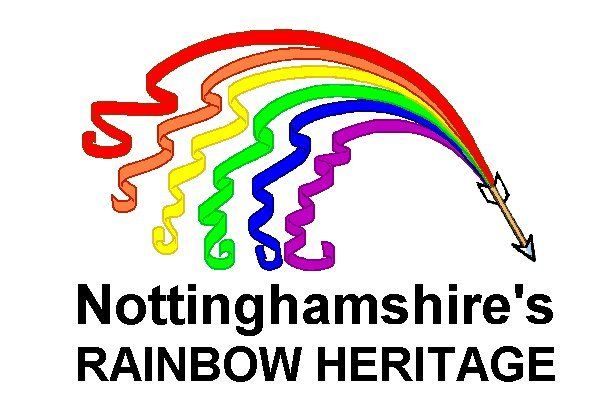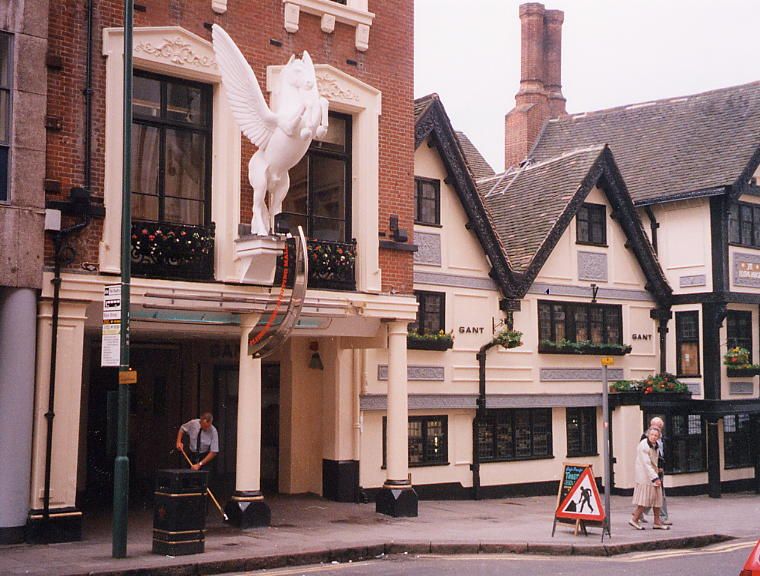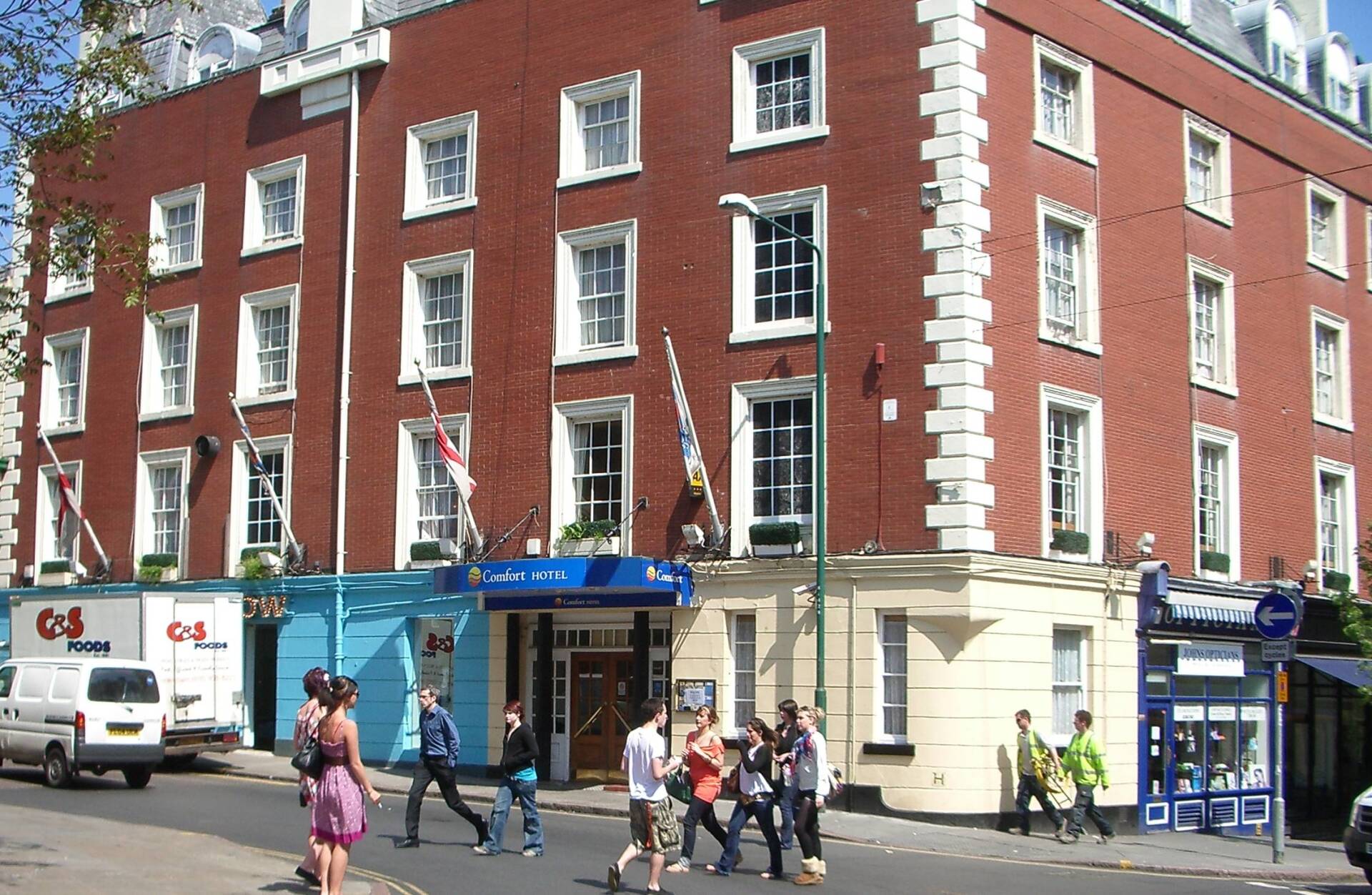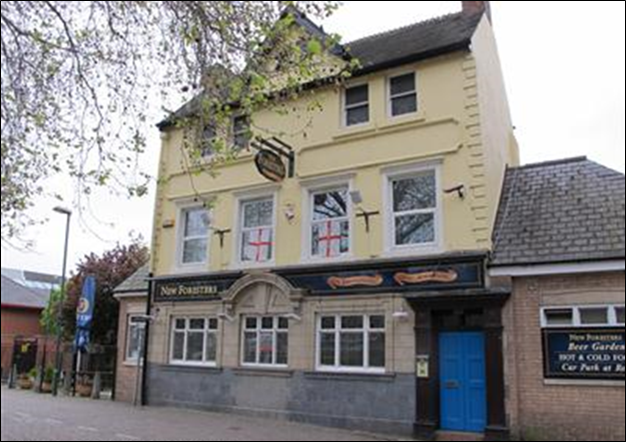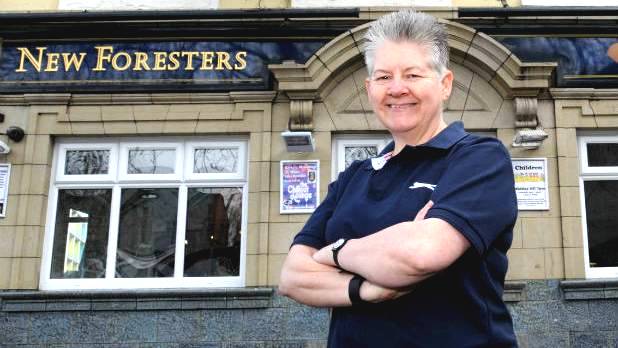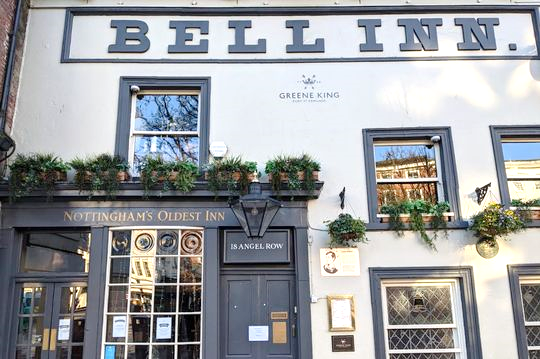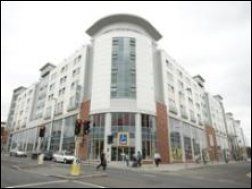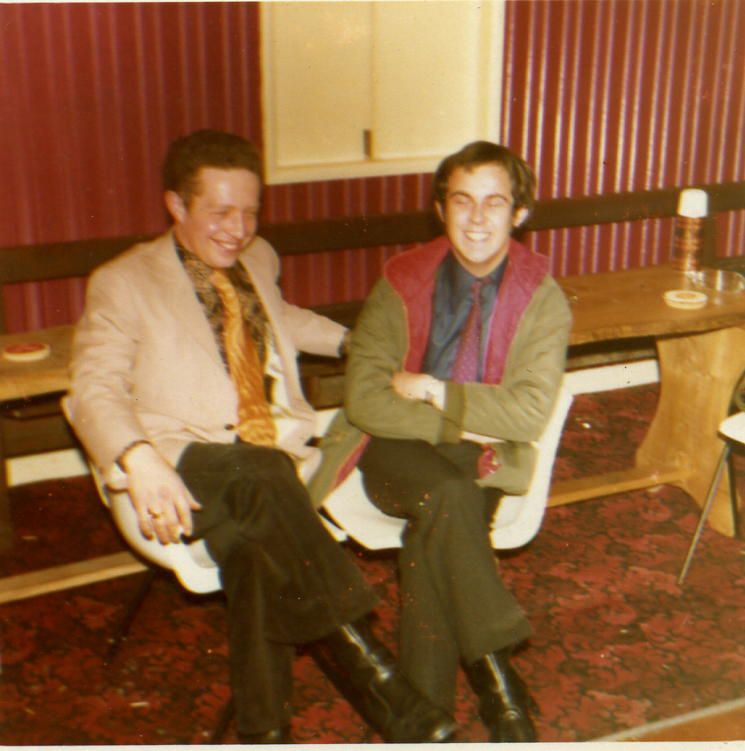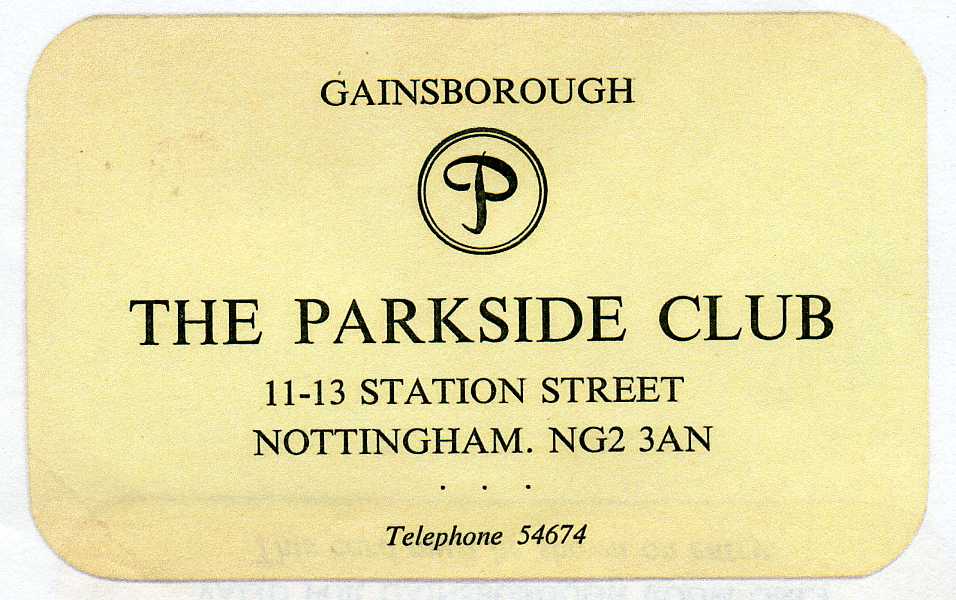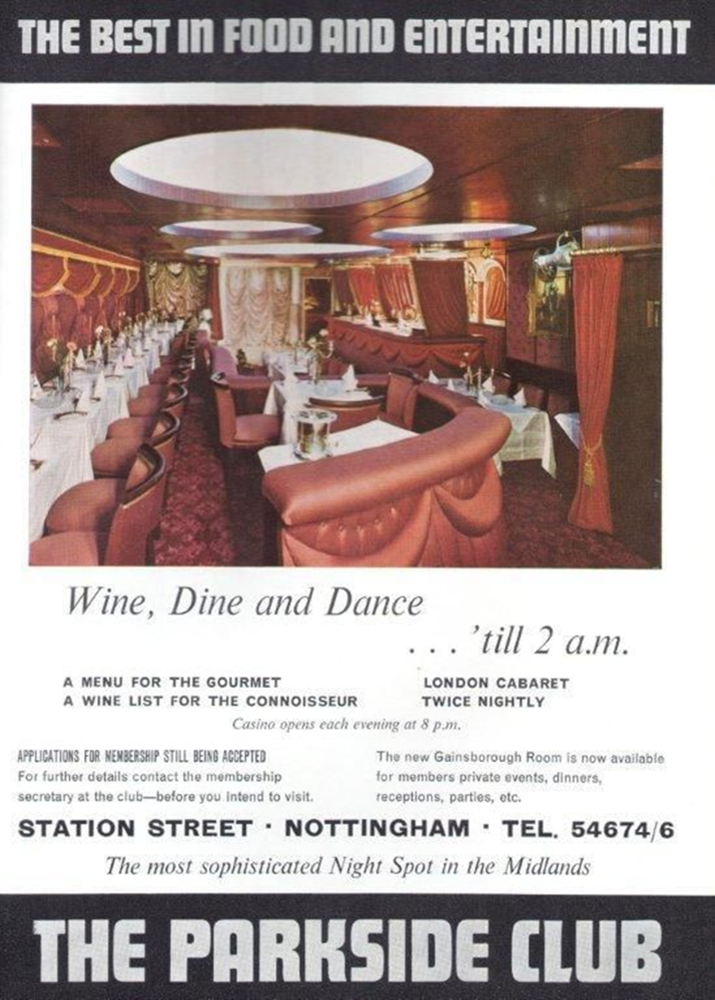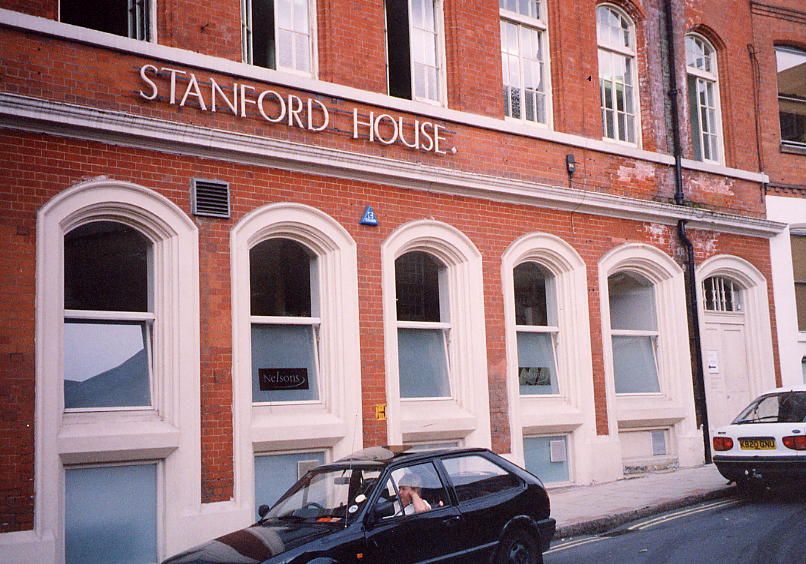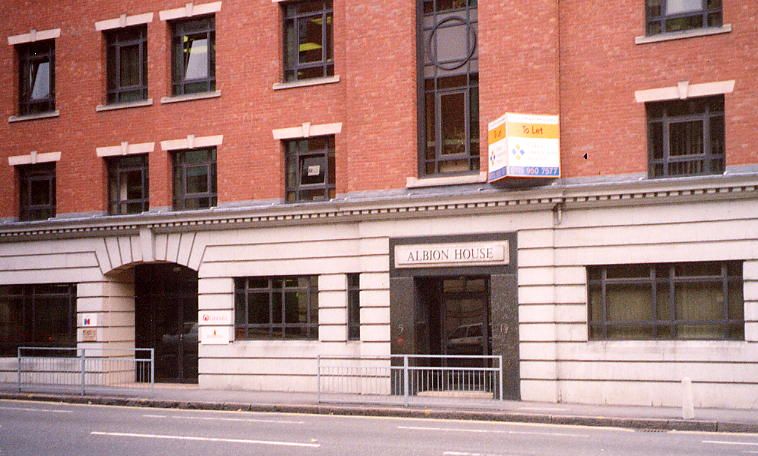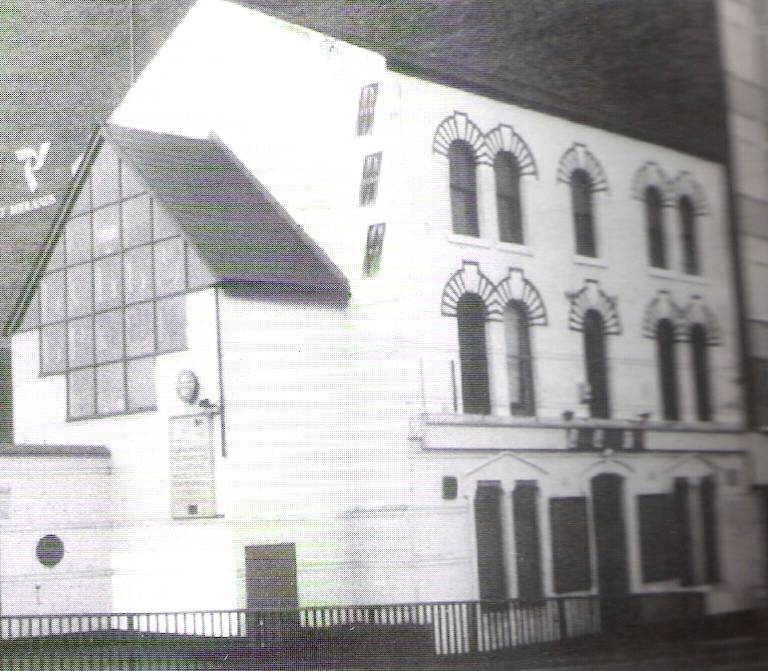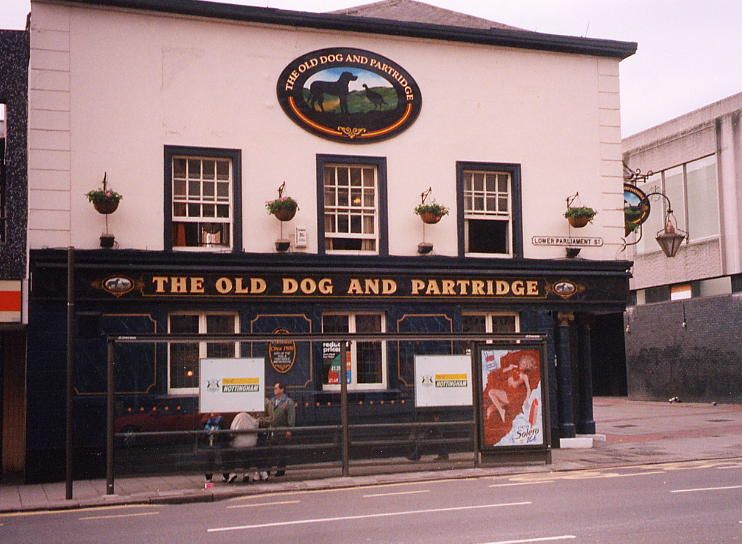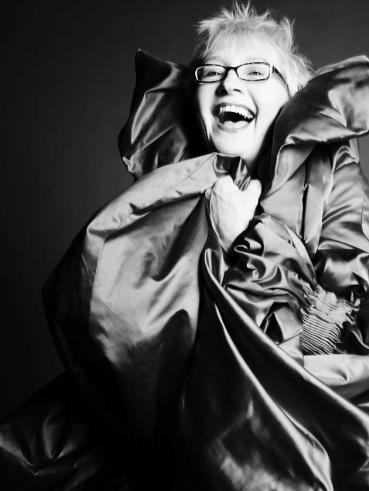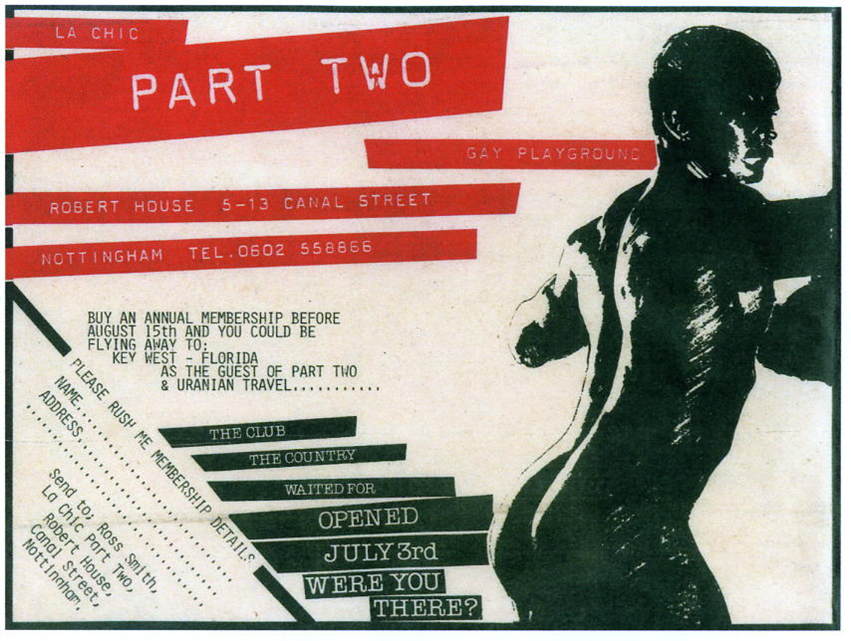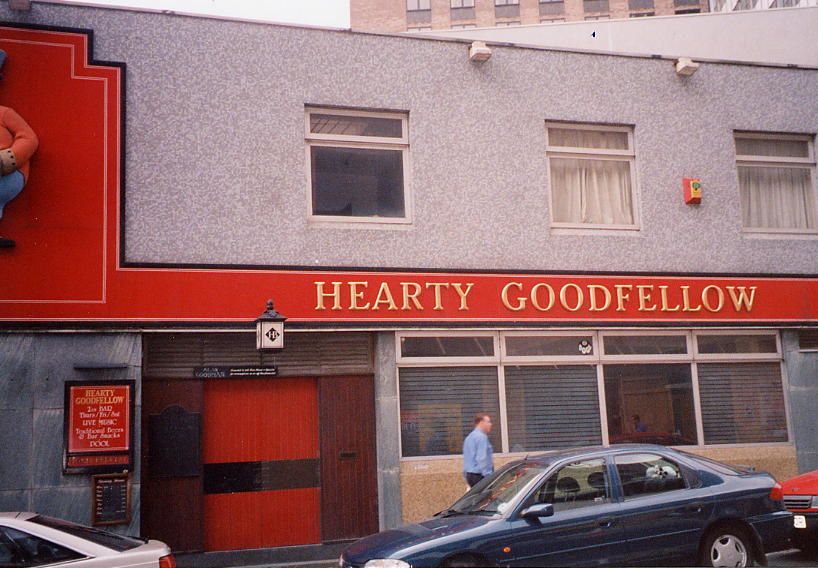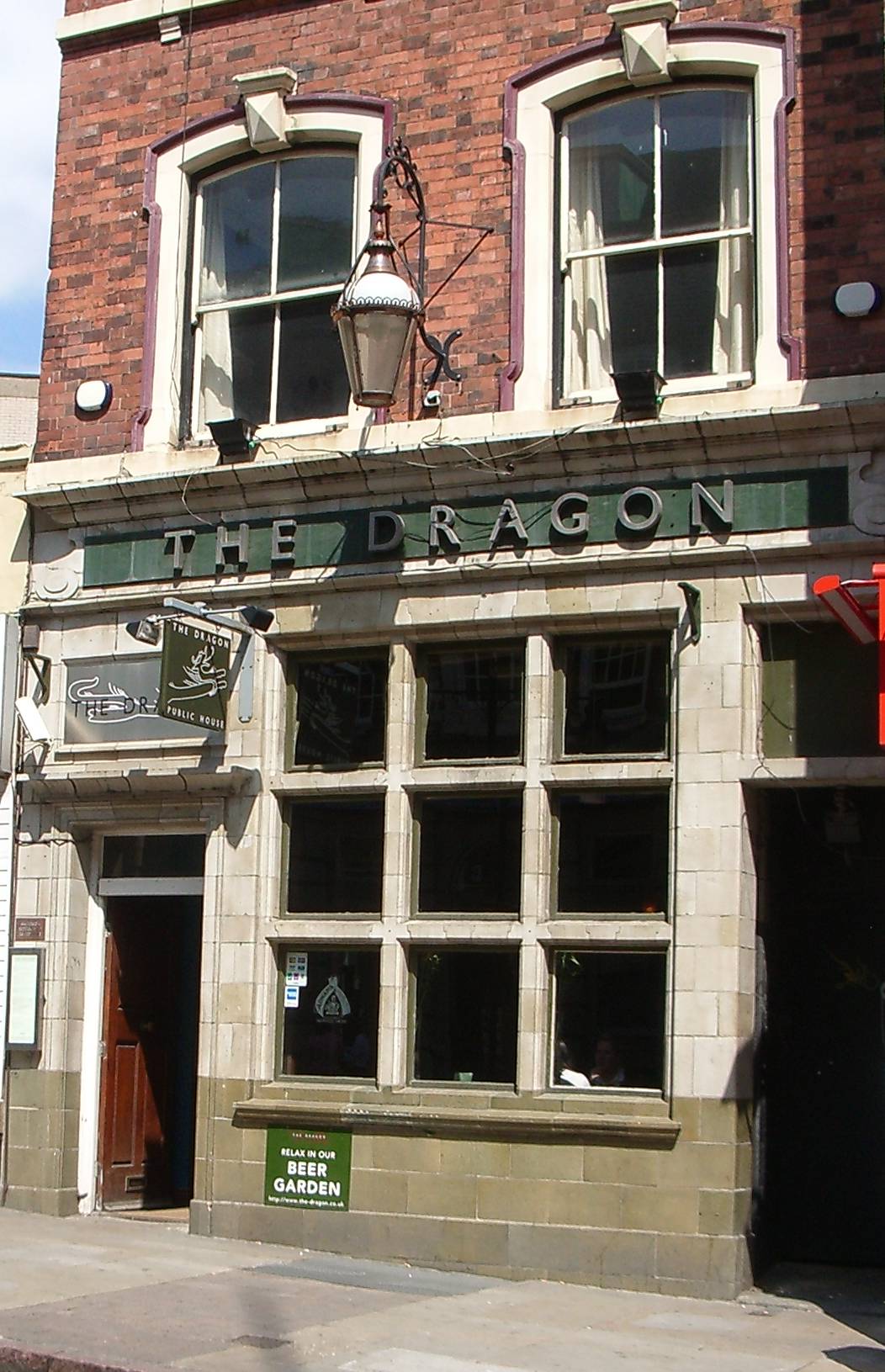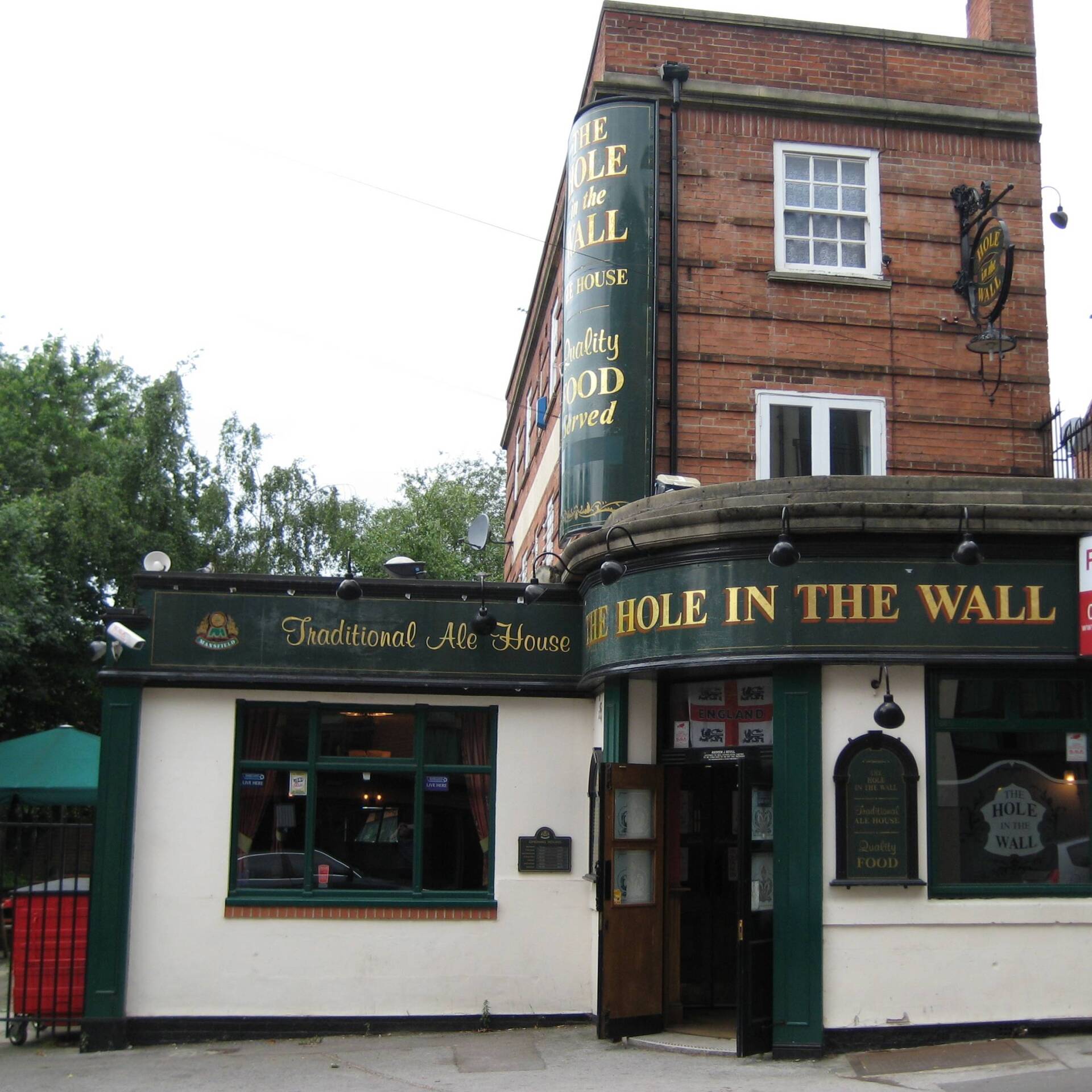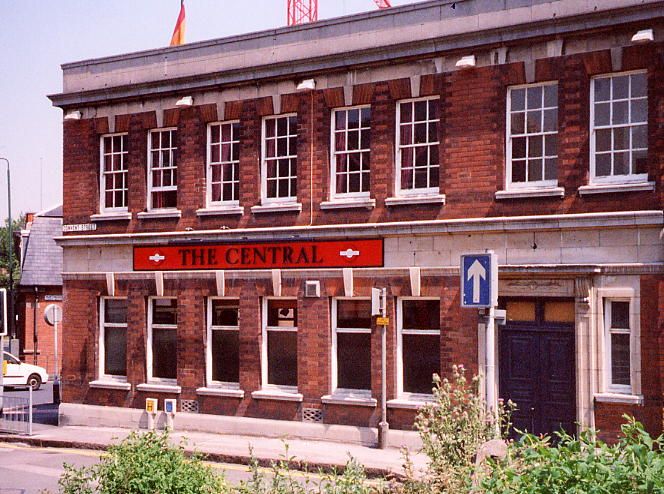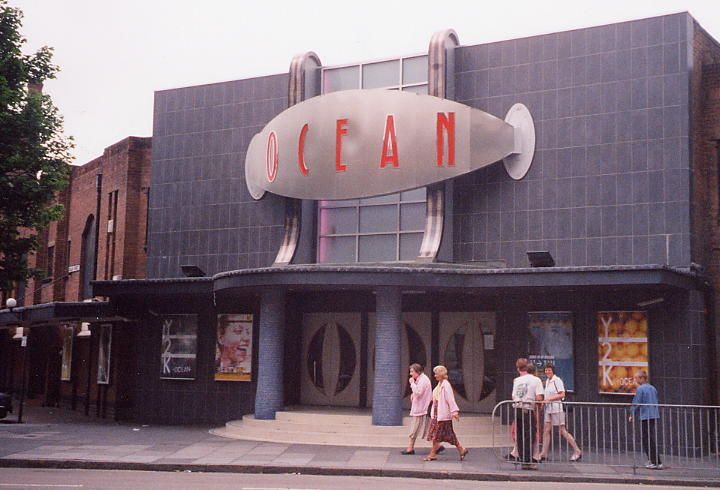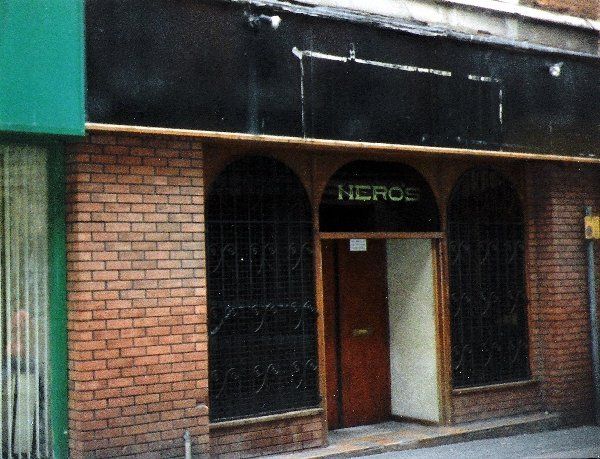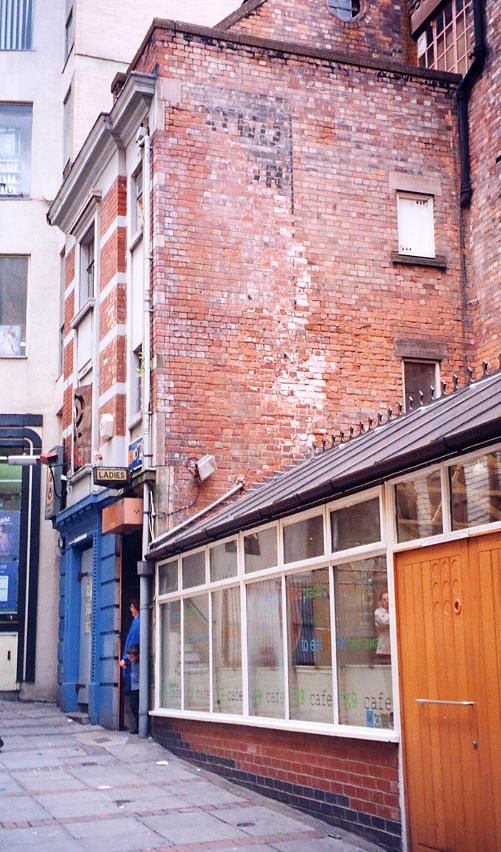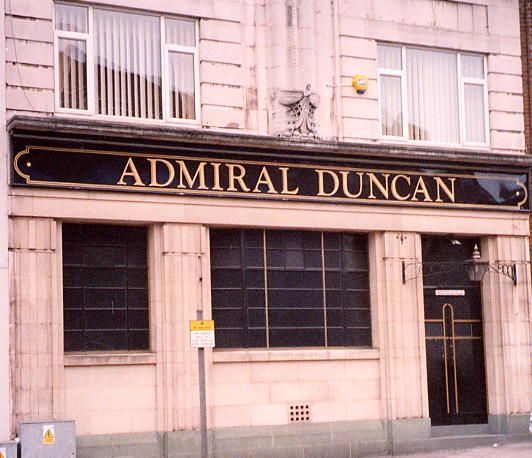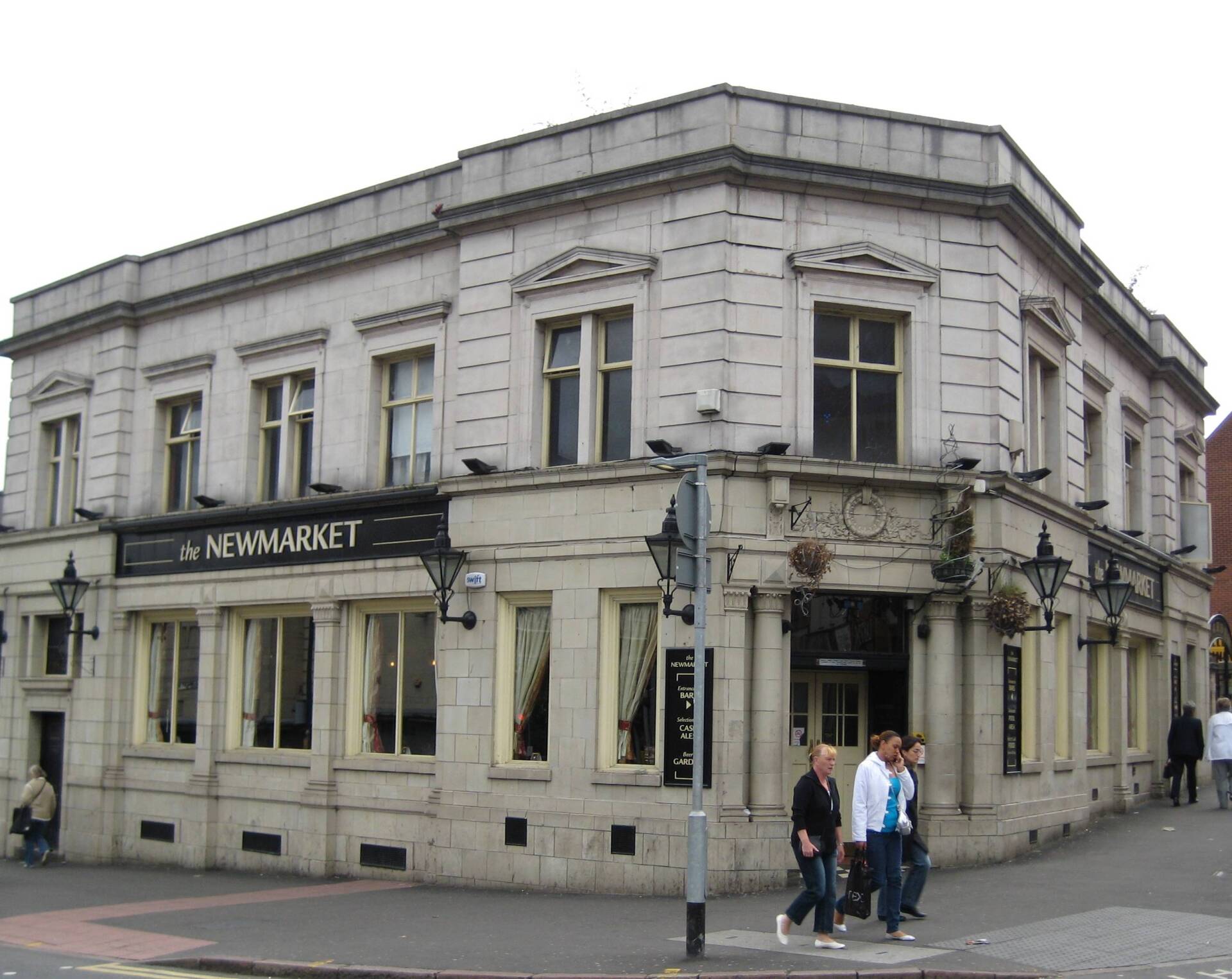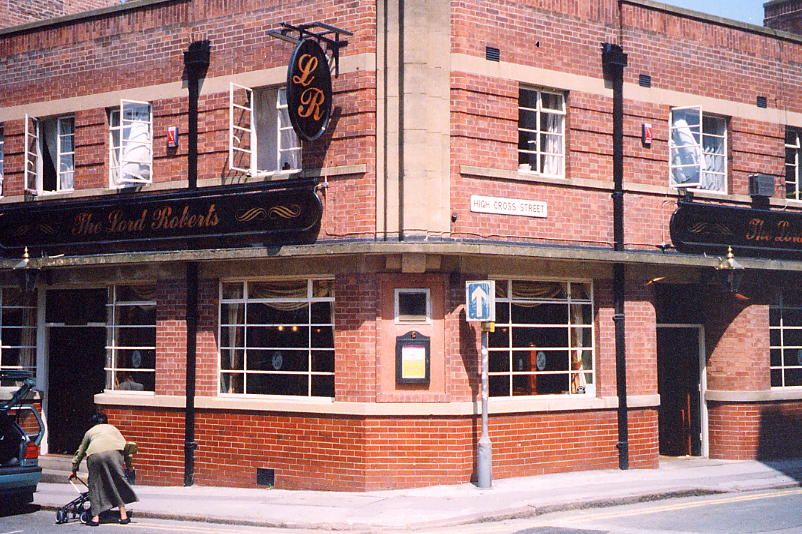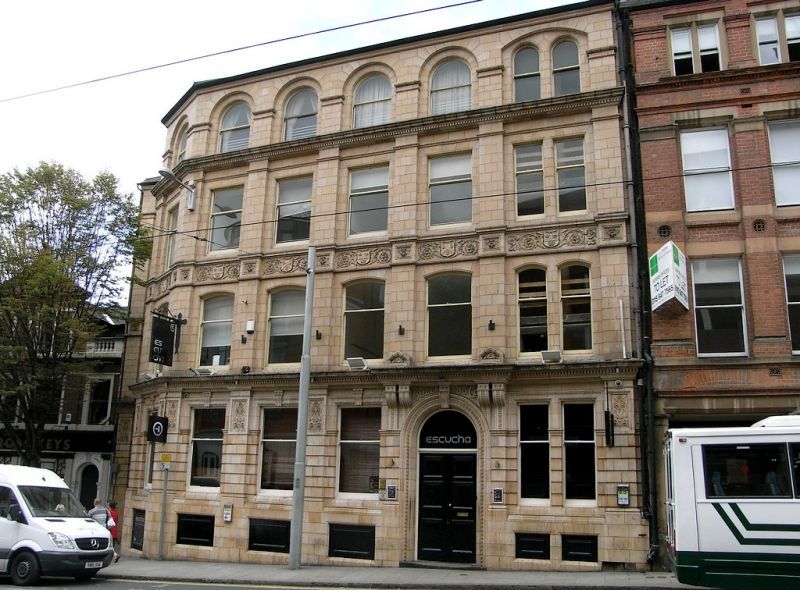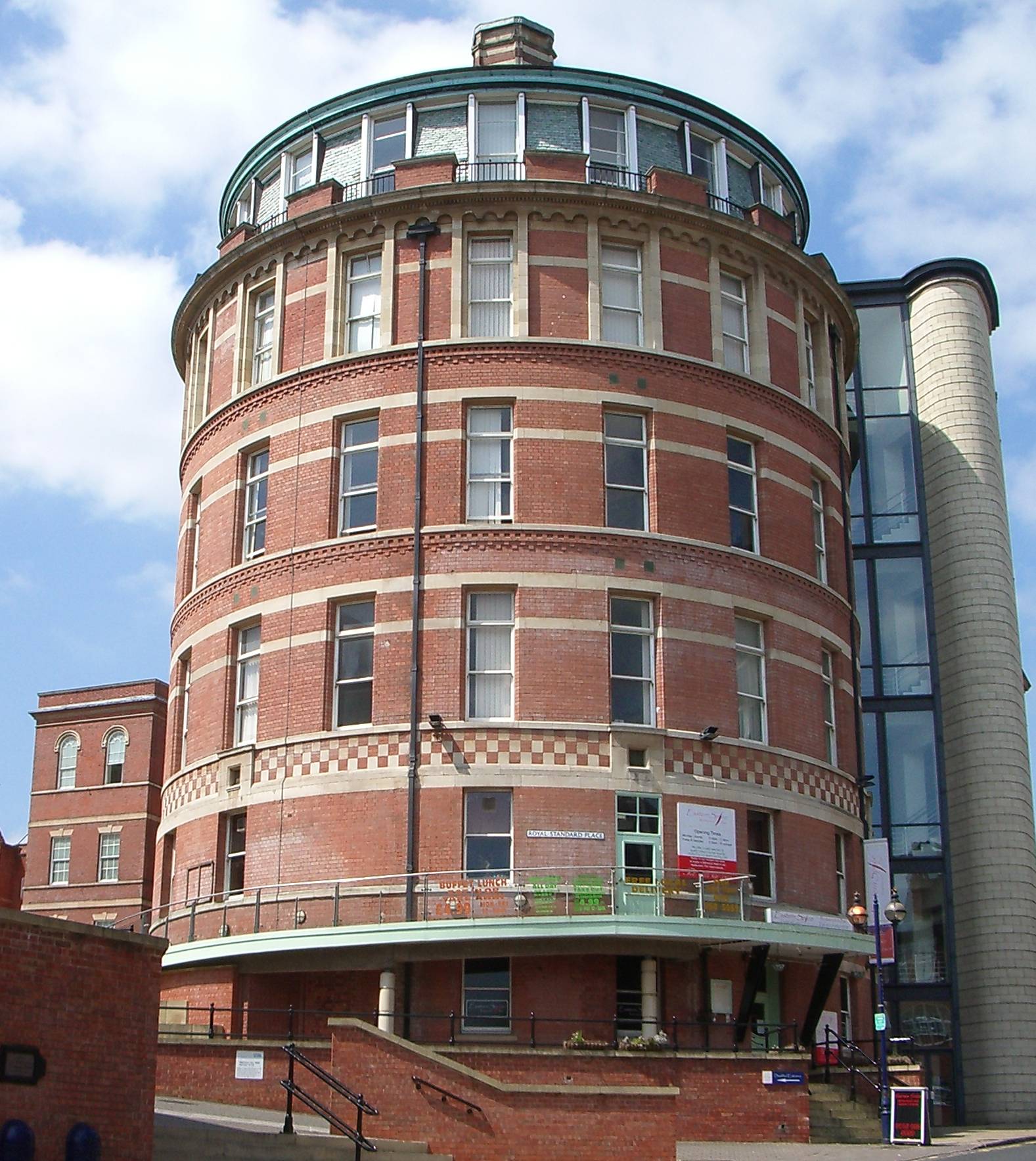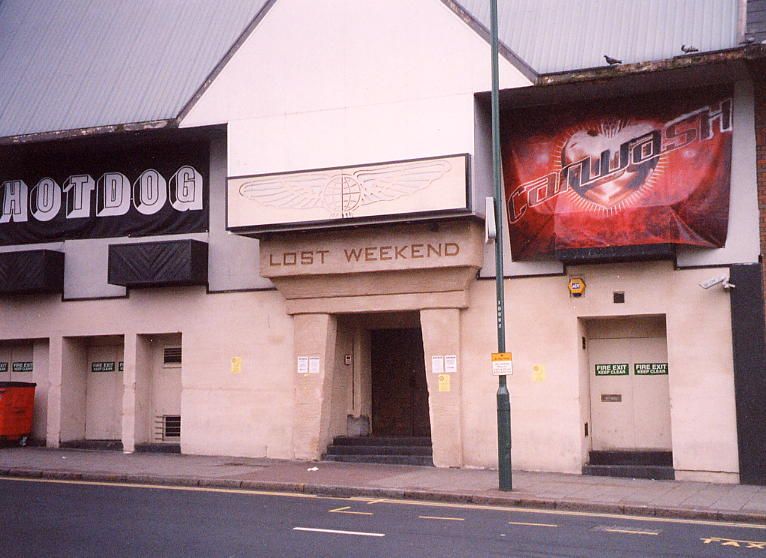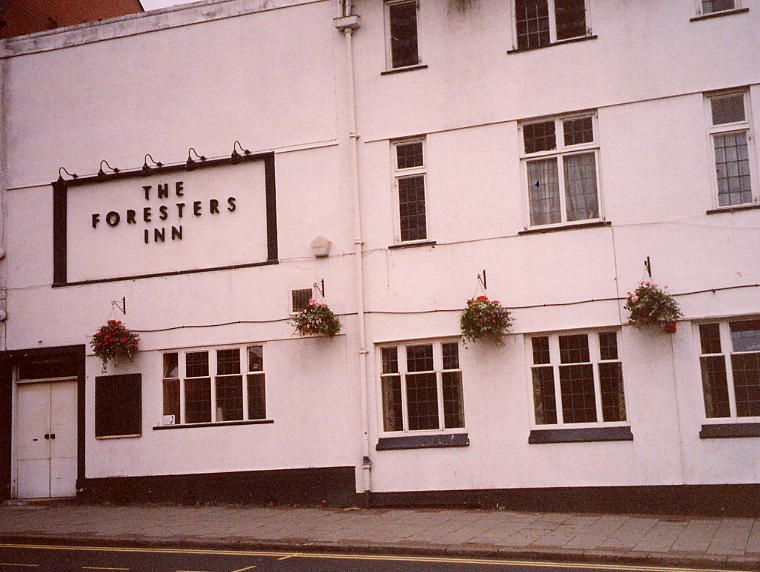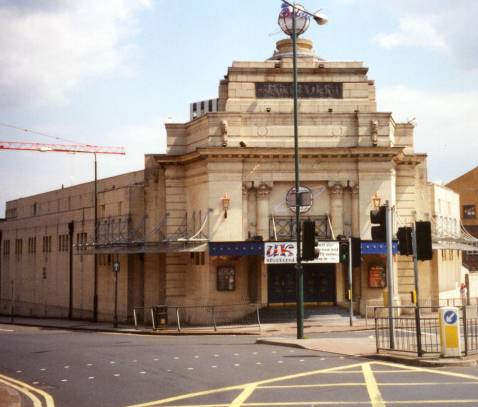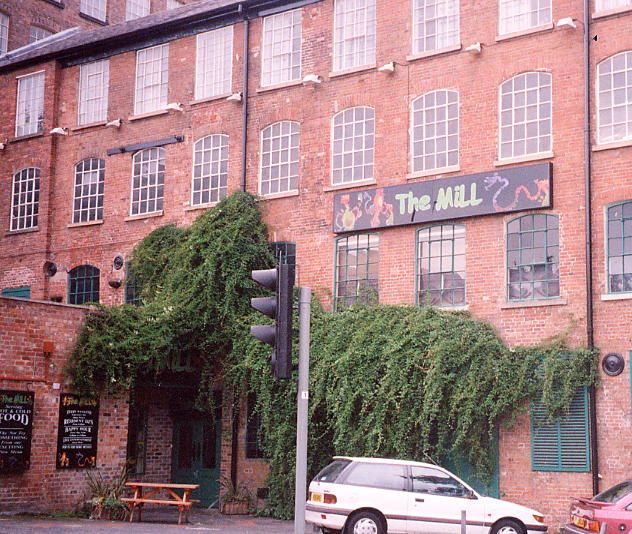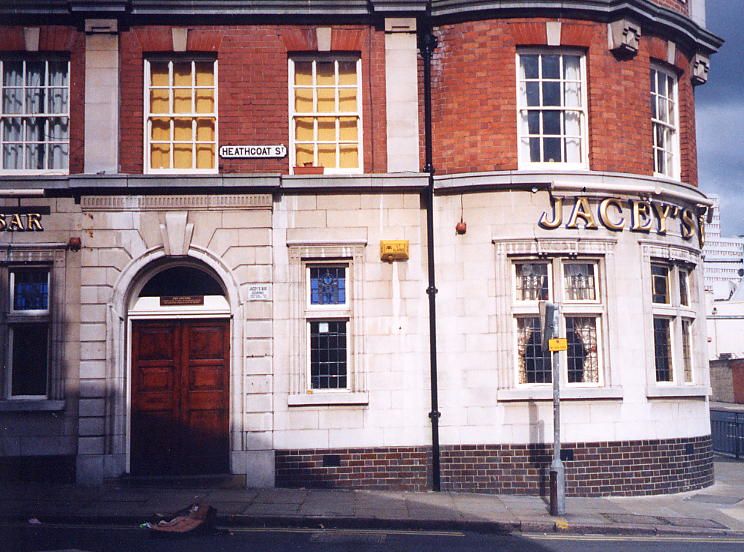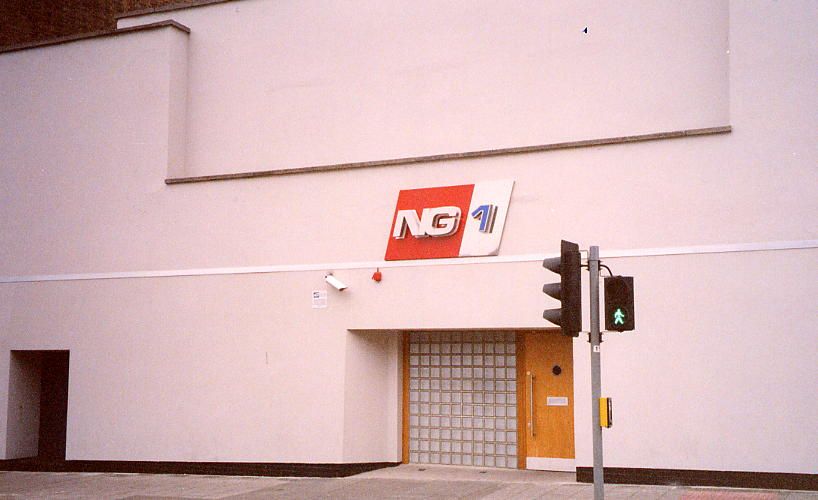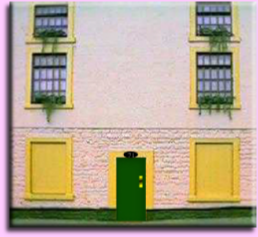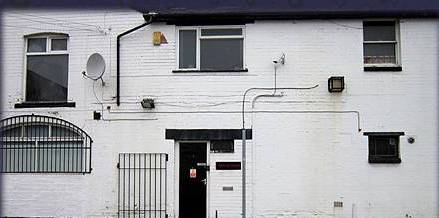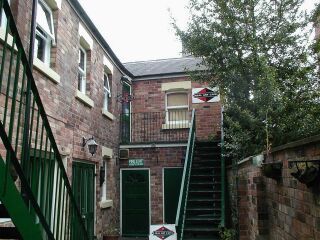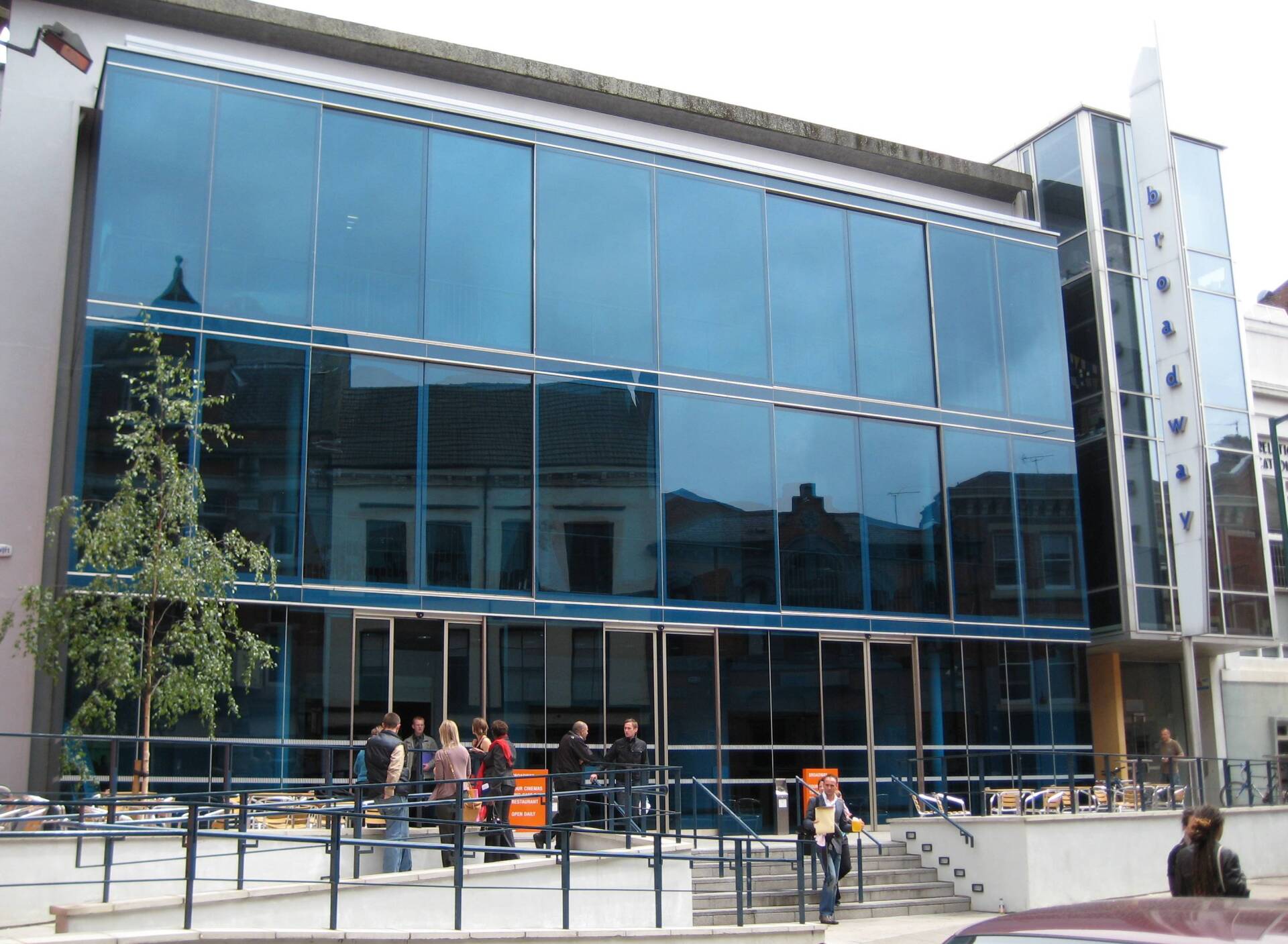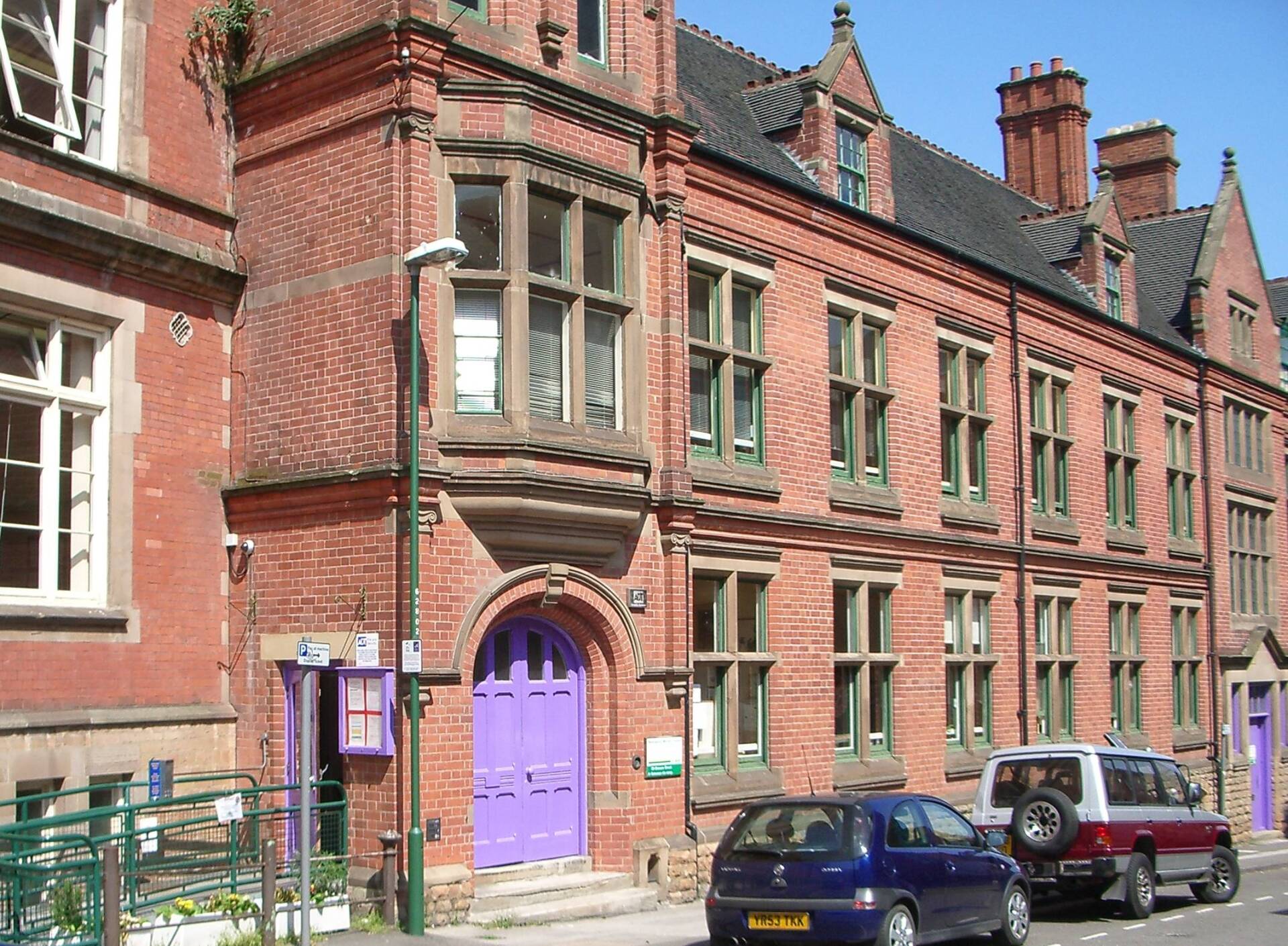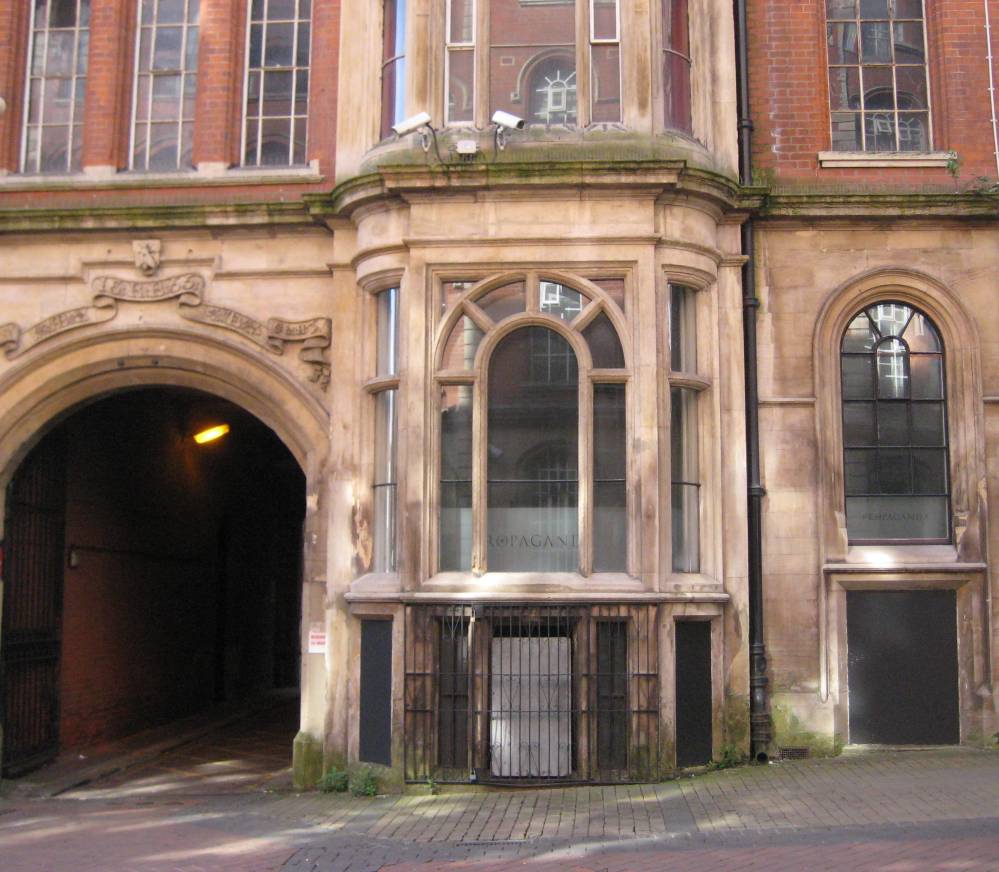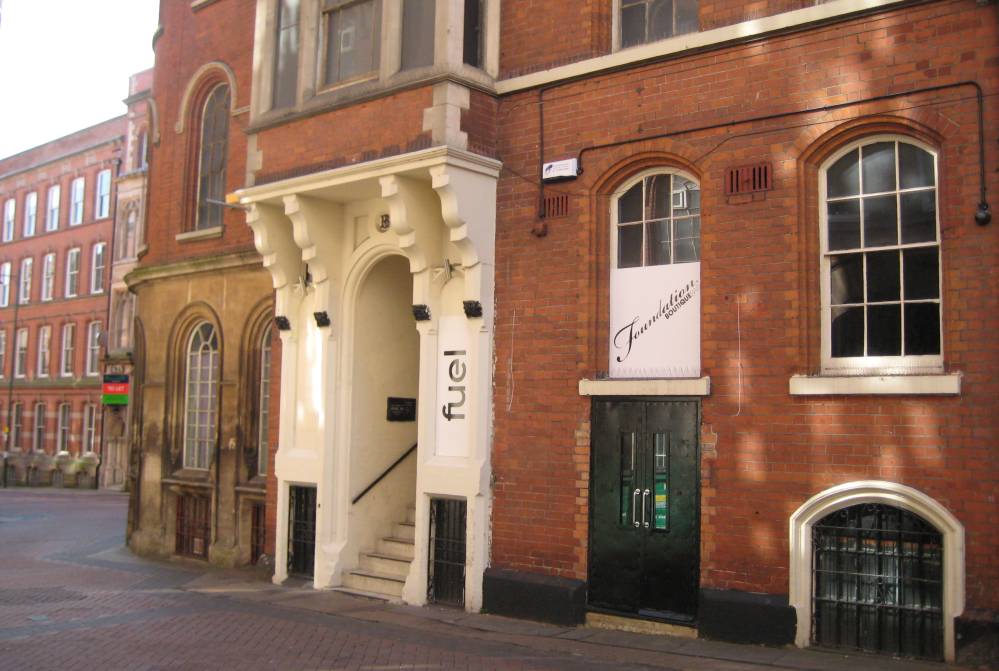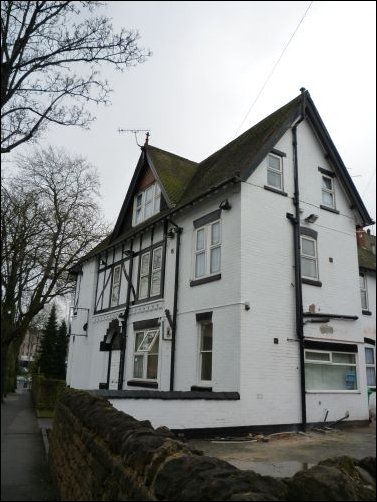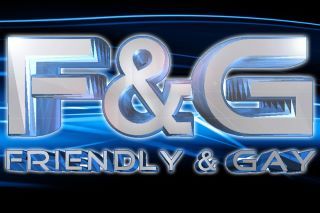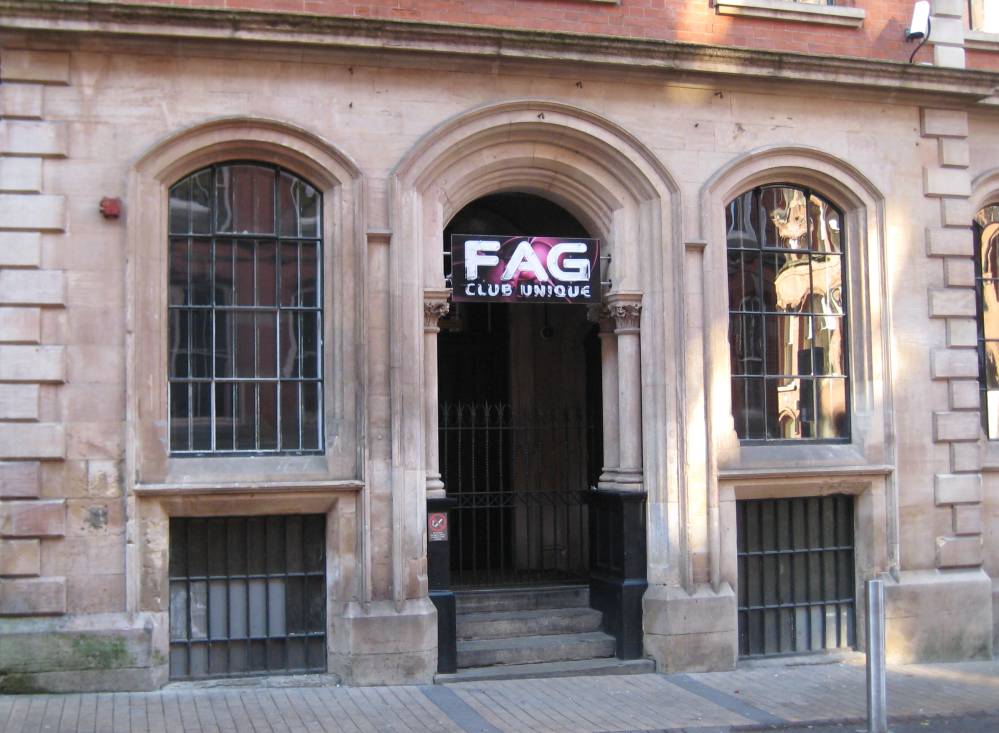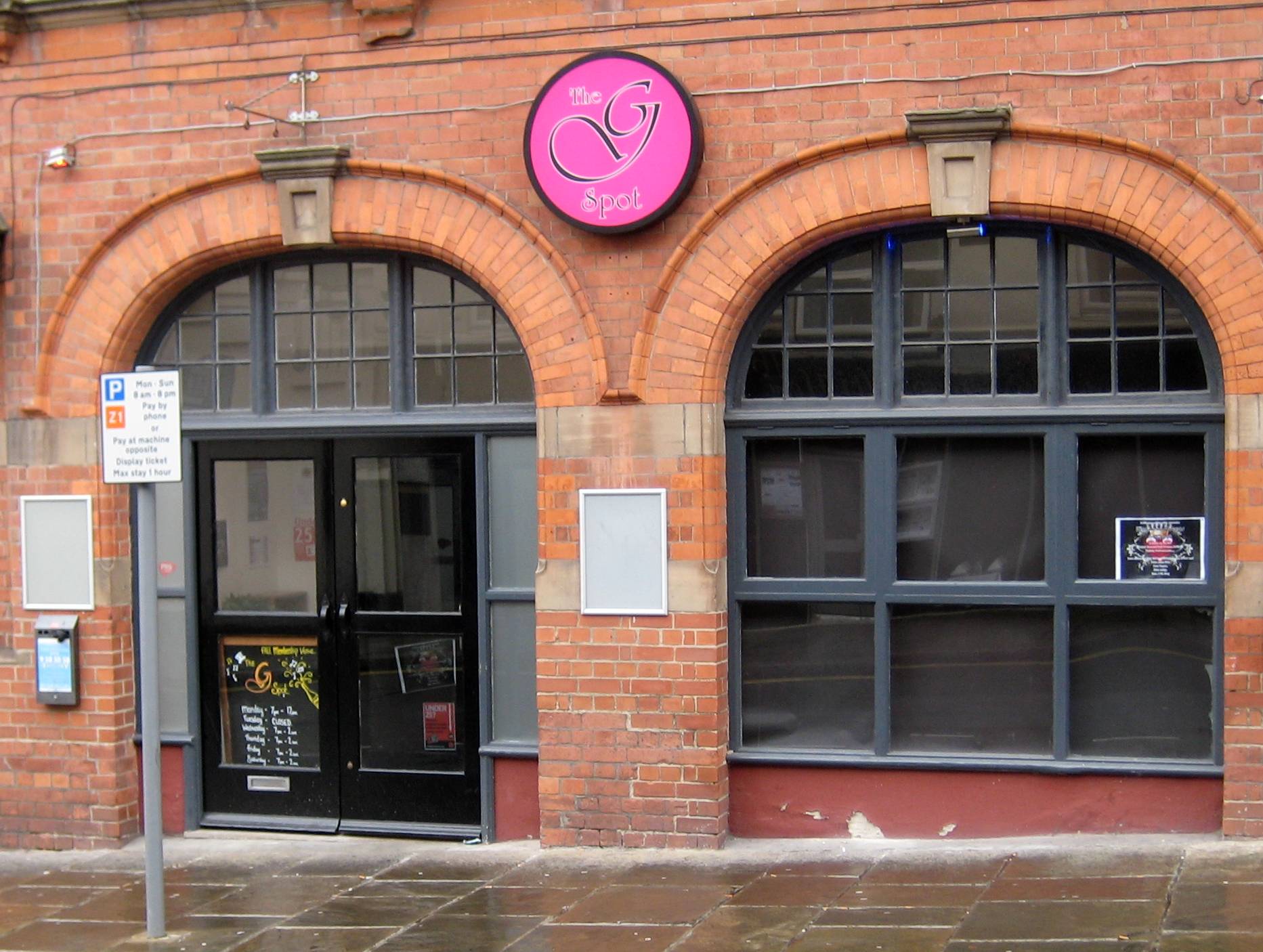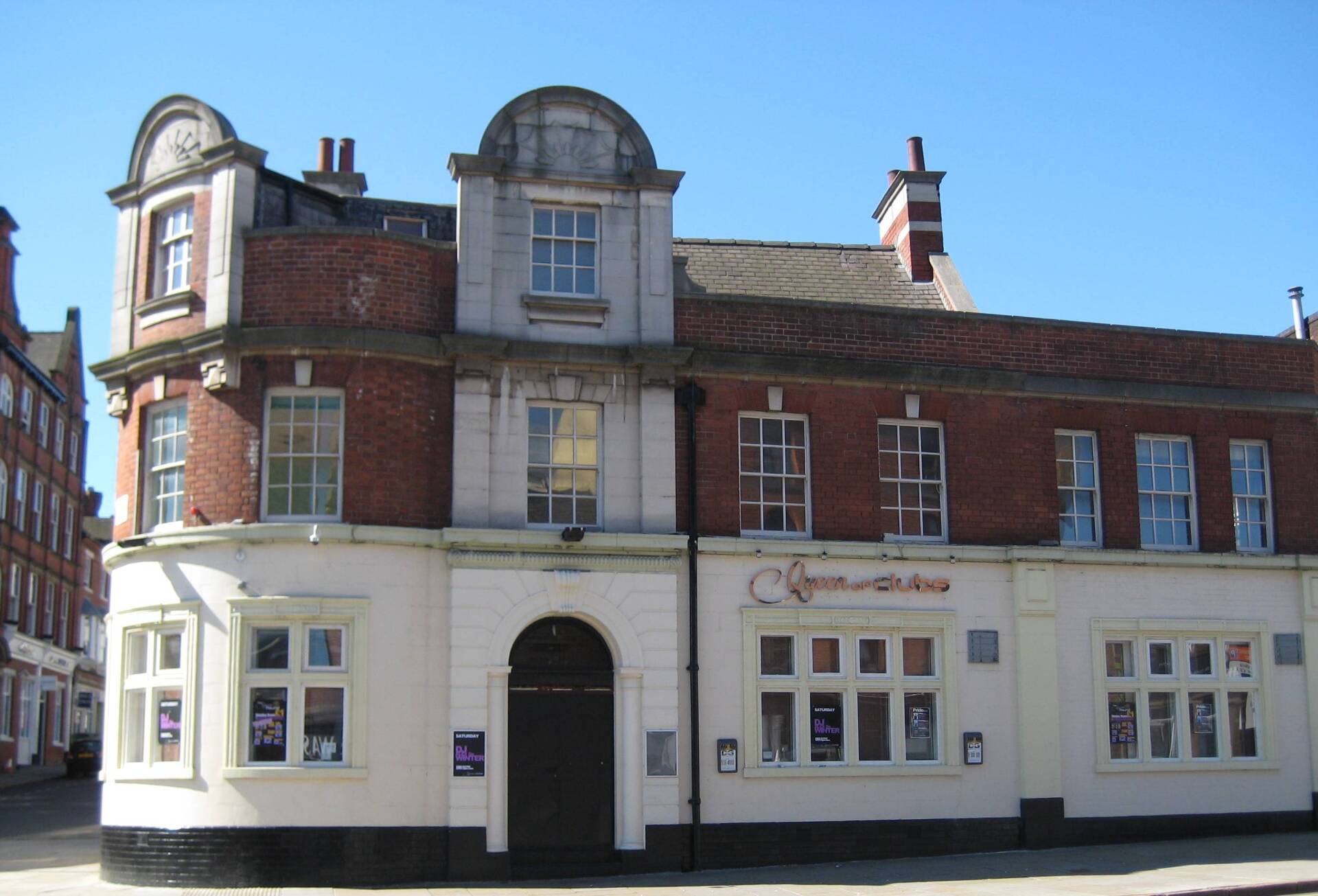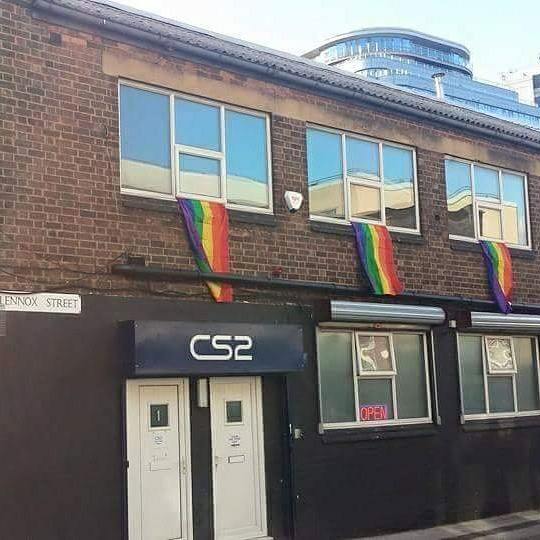This section is about Nottinghamshire's LGBT bars, clubs, discos as well as places such as saunas, cafes, community centres and cinemas which have welcomed the community since the 1950s. It is, more or less, in chronological order.
In some cases the buildings themselves no longer exist. In most cases they no longer function as LGBT venues
The Flying Horse on Cheapside off the Market Square (now fronting a small shopping mall) was the main gay bar in the 1960s. Sometimes known as "The Pansy's Parlour" its reputation was said to be worldwide. To hear Ike Cowen talking about the Flying Horse, click HERE
To read about the memories of the Flying Horse from the view point of a teenage college student, click HERE
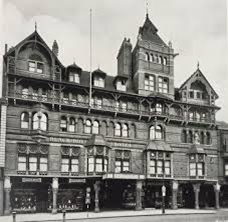
The Black Boy hotel was demolished in 1969. It is recorded that people cried when they saw the remarkable Watson Fothergill building being knocked down -and replaced on Long Row with what is now Primark.
Like the George Hotel, it was another venue which had a bar which served a useful purpose to those in the know.
The Foresters Arms (now the New Foresters) dates back to 1938 and has over 60 years continuous service originally as a lesbian bar which now welcomes all LGBT people.
At the February 2008 Nottinghamshire's Rainbow Heritage exhibition at View from the Top, current manager Debbie Law was presented with a certificate to recognise the 50th anniversary.
In 2021, after a survey, the City Council awarded the City's first LGBT blue plaque to the pub.
The pub has won many awards e.g. in 2018 for the 2nd year in succession, it won the “Best Bar None” award and also the “Best Independent Venue” award.
They have regularly raised money for charities including Notts LGBT+ Network and Stonebridge City Farm. Landlady Debbie Law described the pub as “A community centre with a liquor licence”. On Sept. 25th 2021 she celebrated 20 years of managing the pub. Ill health led to her retiring in 2022 and the pub was then managed by Brent Foster.
The Napier pub on Union Road was a popular lesbian bar in the 1960s.
Some people say that at that time it was "the" bar - exceeding the popularity of the Foresters. The building is no longer standing - the picture shows the current location which, until recently, was Aldi. The Napier used to be at the back of where this shop was located. Thanks to Tony and Angela for the information. Does anyone have any pictures of the original?
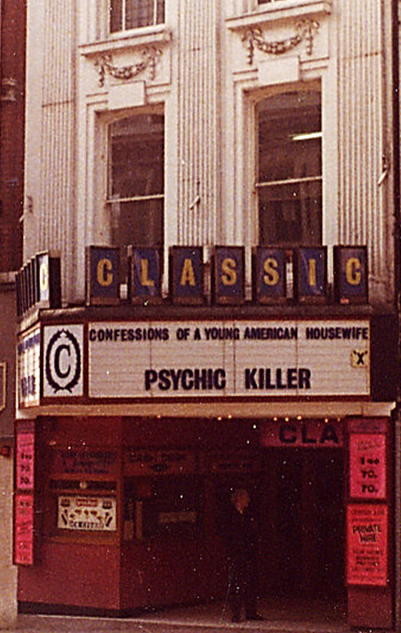
In the 1950s and early 1960s you would find the Scala cinema on Market Street. In 1964 it was renamed the Classic.
It had a reputation for showing "risque" films and, later on in the 1970s, some gay themed films like "Fortune and men's eyes".
The cinema became, for some gay men, an alternative meeting place. One customer described the activities in the cinema as "like musical chairs, people were constantly moving around."
The first club in this area was The Pavilion Club sited in Shardlow, a location deliberately chosen to be more or less equidistant from Nottingham, Derby and Leicester. It developed out of a pub night called the "Bona Ome" club which was tried out in several pubs in places like Langley Mill, Sneinton and Shardlow.
Eventually some of the people involved decided to buy an old sports pavilion and convert it into a genuine members club - owned by the members and run by the members. It opened early in 1971 and was christened the "Handbag Club" by local residents.
CLICK HERE FOR MORE INFORMATION
Mario's is usually thought of as Nottingham's first gay club, but it was preceded - if only for a few months - by the Parkside Club on Station Street.
It had an incarnation as a straight club in the 1960s (see picture on the left), but in the 1970s it operated a gay night for a few months. When Mario's opened, the clientele moved there.
A Parkside Club membership card is shown below.
The second gay club in Nottingham was Mario's, on Stanford Street near what is now the Broadmarsh Centre. It converted from a teeny-bopper's club (the Dungeon) to a gay club in 1971/1972.
Though often a bit tatty around the edges, it had a good and friendly atmosphere and continued successfully for over 10 years, changing its name to Shades and then to Whispers.
Its building is now called Stanford House
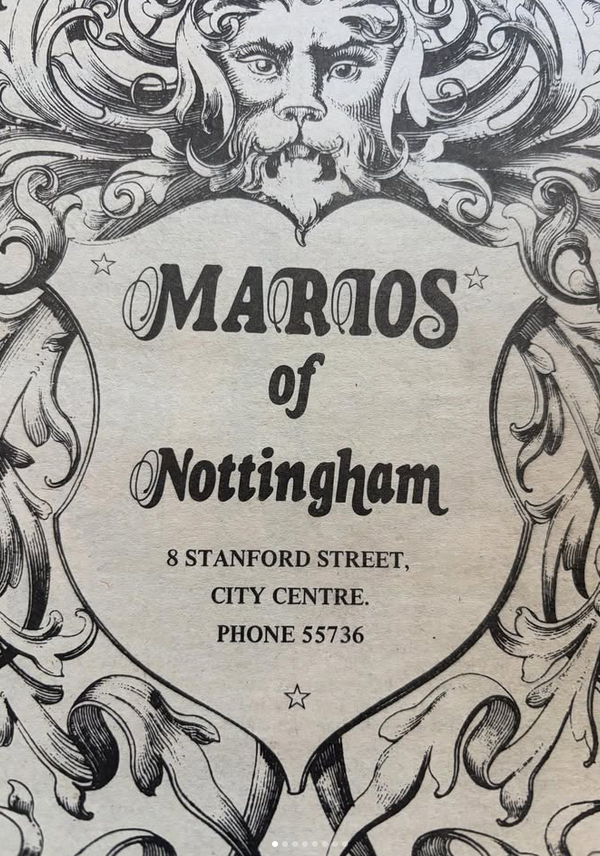
1973 saw the opening of La Chic in what is now Albion House on Canal Street.
La Chic was ground breaking in being the first club in the UK to have a licence which stated that it was specifically for use by gay men and lesbians - a situation which made headlines in the Nottingham Evening Post. It closed in 1977 and re-opened in 1981-5 as Part Two.
Click HERE for comments in Nottingham Evening Post on the opening of La Chic
The Roebuck (take your own flea spray) is long demolished. It was situated near to the far end of the Victoria Centre on Mansfield Road and was the principle rival to the Old Dog and Partridge (see below).
The Roebuck was managed by the formidable Maxine - whose partner ran off with a horse trainer from Cheltenham.
The Old Dog and Partridge was probably the most popular gay bar in the 1970s.
Like many gay bars of its time, the bar at the Dog and Partridge was a separate bar (here it was the back bar) in a straight pub.
Sometimes such bars had signs like "Private Party" to attempt to keep the straights out. It was one of the early manifestations of the Bradley family's involvement in gay Nottingham.
Sue Pollard says:
I met my first gay man when I was fifteen. It was very much under wraps then as you can imagine. They all gathered in the Dog & Partridge pub - in the back room with their Pringle shirts. I loved their sense of humour, I totally clicked with it. I guess I just offered them empathy and totally accepted them for who they are. I cannot stand bitchy queens though, they piss me off.”
Part Two Club opened in 1981 in the same building as that used by La Chic. In fact the name "Part Two" is short for "La Chic Part Two".
For its first two years, it was often described as the best gay club in the country. From time to time various celebrities spent evenings there
For fuller details of the "Part Two story" click HERE.
To hear club manager Ross Smith talking about the opening of Part Two, click HERE
The Hearty Goodfellow (Maid Marian Way)
At the end of the 1970s the "Hearty" took over as the most popular gay bar in Nottingham and held that position until about 1982.
The downstairs bar was the gay bar and often there was a "Private Party" sign in front of it. The bar on the first floor was occasionally used by CHE for gay discos.
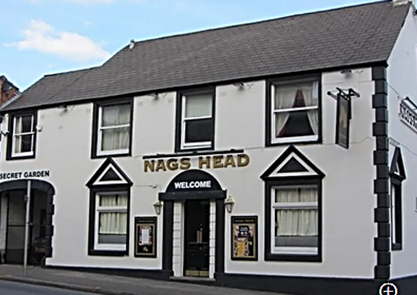
The 1980s lesbian magazine Diversion listed several lesbian friendly bars - they included the Nags Head on Mansfield Road (see left) and the Clarence on Alfreton Road (see right).
Both were permanently closed a few years ago
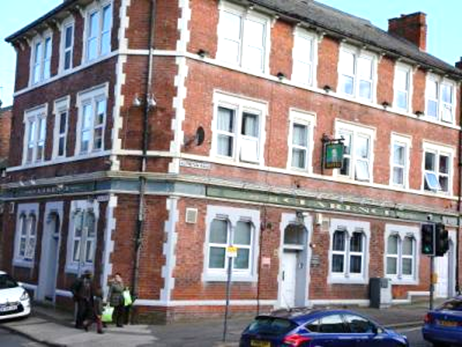
For a short time between the slow death of the Hearty Goodfellow and the birth of Gatsby's, the Dragon - on Long Row - was a popular gay bar.
On one night, the bar was invaded by an aggressive group of abuse-chanting skinheads. The landlord disappeared upstairs and returned with his large alsatian dog causing a rapid skinhead departure.
A copy of GEM (Gay East Midlands) from early in 1984 confirms that The Hole in the Wall, on North Sherwood Street was gay friendly, or at least someone thought it was or wanted it to be.
Were those thoughts or wishes realised? It certainly passed us by at the time. Nevertheless, in 2015 it started to run lesbian pool nights.
In 2022, the new managers were two gay men who decided that the pub should definitely be LGBT+ friendly
The pub ran several gay-related and drag-themed events for a couple of years, but by October 2024 the managers felt that the strain of running the pub was too much and it closed.
In 1983 the Bradley Family (the redoubtable Hilda and her sons) opened Gatsby's as a gay pub. For several years it was often so packed that movement was difficult, breathing was an effort and hearing someone near to you was impossible - so people loved it.
The Bradley family ran a good pub, but made little effort to engage with "the community".
Towards the end of the 1990s, the approach of the Grim Reaper (eventually to be embodied in the form of alcoholism and old age) led to a change in management and in name. The pub reverted to its previous name, The Central, and the management was certainly a little more "communitaire". In 2007 it was renamed "Niche", which closed at the end of 2008, then re-opened in early 2009 only to be renamed "The New Gatsby's" a few months later - and then it closed ... acrimoniously.
To read the letter sent by the management to Healthy Gay Nottingham when Gatsby's closed in 2009, click HERE
In 1984 a new phenomenon hit Nottingham. The big once-a-month one-nighter. The first Monday of every month was "The Astoria".
In the 1960s there was a relatively sedate dance hall called the Sherwood Rooms on Collin Street at the bottom of Maid Marian Way. In the 1980s this had become the Astoria (and was later to transmogrify into MGM and then Ocean).
The Astoria was a very large heterosexual disco club and they had been prevailed upon to use one of their off nights for the poofters. It was a great success.
Part of the success was due to the music provided by Peter Martine, who later called his nights "Revolution". Peter is fondly known as the "Sleezemeister". Many years ago a TV programme featured "Clarence the cross-eyed lion". Peter Martine is also fondly known as Clarence.
Club 69 (now the Cookie Club) on St. James' Street was an attempt by the Bradley family to fill the gap left after Part II closed.
It only partially succeeded (as indicated by its need to change its name - becoming incrementally less tacky on each transformation to L'Amour and then in the 1990s Nero's - and relaunched several times).
Apparently it was also nicknamed Queeros and La Morgue.
THE ADMIRAL DUNCAN ..... @D2
(Cranbrook Street/Lower Parliament Street)
By 1987 the Admiral Duncan was tentatively moving towards being a gay bar. The Duncan eventually started to hold raffles and events for Switchboard - the 1st in 1988 and 5 huge benefits over the 1990s (unlike De Luxe, where a benefit was held but the money never got to Switchboard).
In the 1980s and early 1990s the management of the Duncan was a well-meaning straight couple, but toward the end of the '90s an all-gay management took over and changed the name to @D2. The pub was smartened up and attracted a lively crowd. @D2 closed in January 2012. Re-opened in Spring 2013 - closed shortly after.
In the late 1990s The Lord Roberts was a gay-friendly theatre bar, helped in this respect by its proximity to Broadway Cinema. The downstairs Green Room was often opened for free use (if you bought enough drinks) by various groups - including Switchboard, Breakout, Pride and East Mercia MSC.
In the 2000s it became a genuine gay bar, but in 2015 its new owners were very public about not being thought of as gay any more. More recently new management returned it to being a gay pub. In a 2024 Evening Post survey it was voted top pub. Much of its success is down to manager Craig Pennington-Hayes.
At the end of the 1990s, the Palais (Lower Parliament St) became the home of Peter Martine's 1st Monday of the month Revolution night - which moved from its previous home at Ocean.
The Palais was refurbished in 2004 and renamed Oceana.
Revolution temporarily moved to a home (Faces) in the Lace Market and then skipped over to The Lost Weekend - see above - and then decided to return to Faces. How did we keep up?
The Mill (Cranbrook Street)
Even in the early 1980s the Mill had a vague reputation of being gay-friendly. It was never an out-and-out gay bar, but towards the end of the 1990s it was popular with a mixed gay/studentish crowd.
It was swept away in the new millennium by the speculative tide of "innercity living" when it was bought for conversion into trendy apartments.
Established as a gay pub in 1999 - the largest gay pub in Nottingham - Jacey's was very popular for a while. It's attempt to host gay strippers was at first banned by the Council. Their ban was successfully challenged when Jacey's pointed out that the Council had allowed the strip show "The Real Monty" at the Theatre Royal. A change in management to someone (who shall remain nameless) who took less interest in the views of his clientele saw that popularity start to fade.
After a revamp and a name change to "ICE", customers melted away. In 2008 it opened as PINK under new management - but was closed after its licence was revoked in Dec. 2010 after management tried to cover up a violent incident. In June 2012 it reopened as Queen of Clubs
In 2000, Nottingham's first proper gay club for several years opened as NG1 next door to the Admiral Duncan on Lower Parliament St. It is large, well-equipped and clean and (here the resemblance to a personal ad breaks down) on two floors.
It WAS certainly one of the best gay clubs in the region, but in 2015 it acknowledged that it had become a straight club.
Venues in Mansfield have been few and far between, but Zeus gay sauna started in the 1990s and keeps going.
In QB, a poem covering all the LGBT venues included:
“Those who take a Northern road may end up at the door of Zeus, where steam will make your pores explode and turn your buttocks brilliant puce”.
Voted one of the top 10 cinemas in the world, Broadway Cinema on Broad Street has a gay friendly bar and restaurant, has from time to time run fundraising events for local LGBT organisations and most years runs a selection of films in an LGBT film season.
In 2010, it hosted the Nottinghamshire's Rainbow Heritage exhibition
Not of course a pub or bar, Nottingham Women’s Centre acted as host for several lesbian groups and organisations at this time: Lesbian Line, Women are Gorgeous and the Black Lesbian group to name three.
It is still very lesbian friendly.
The Women's Centre library still contains many magazines, books etc with a lesbian theme. For a catalogue, click HERE
Nottingham has had several gay-friendly hotels, but probably the first genuine gay hotel opened early in 2010 at 1 Hucknall Road.
This is the New Gables hotel and was run by Debbie Law, licensee of the New Foresters bar.
Though the hotel opened in February, there was an official celebration on April 6th with the Sheriff of Nottingham, Councillor Leon Unczur as the guest of honour.
The hotel closed in 2013.
One of the great "might have beens" was the proposed Outhouse LGBT Centre on Cranbrook Street/Lennox Street. You can read about it by clicking HERE.
In 2011 the unoccupied Outhouse building was turned into a sauna, CS2, which closed in 2019.
CS2 achieved fame (notoriety?) when it was the subject of a Channel 4 hour long documentary "The Secrets of the Sauna" which can be seen HERE.
In 2021 Troy Jenkinson put together a Nottingham LGBT Walking Tour. It takes in all the venues where the buildings still exist and also includes other places of historical relevance, such as the National Justice Museum and the proposed Outhouse LGBT Centre. To see the Tour click HERE
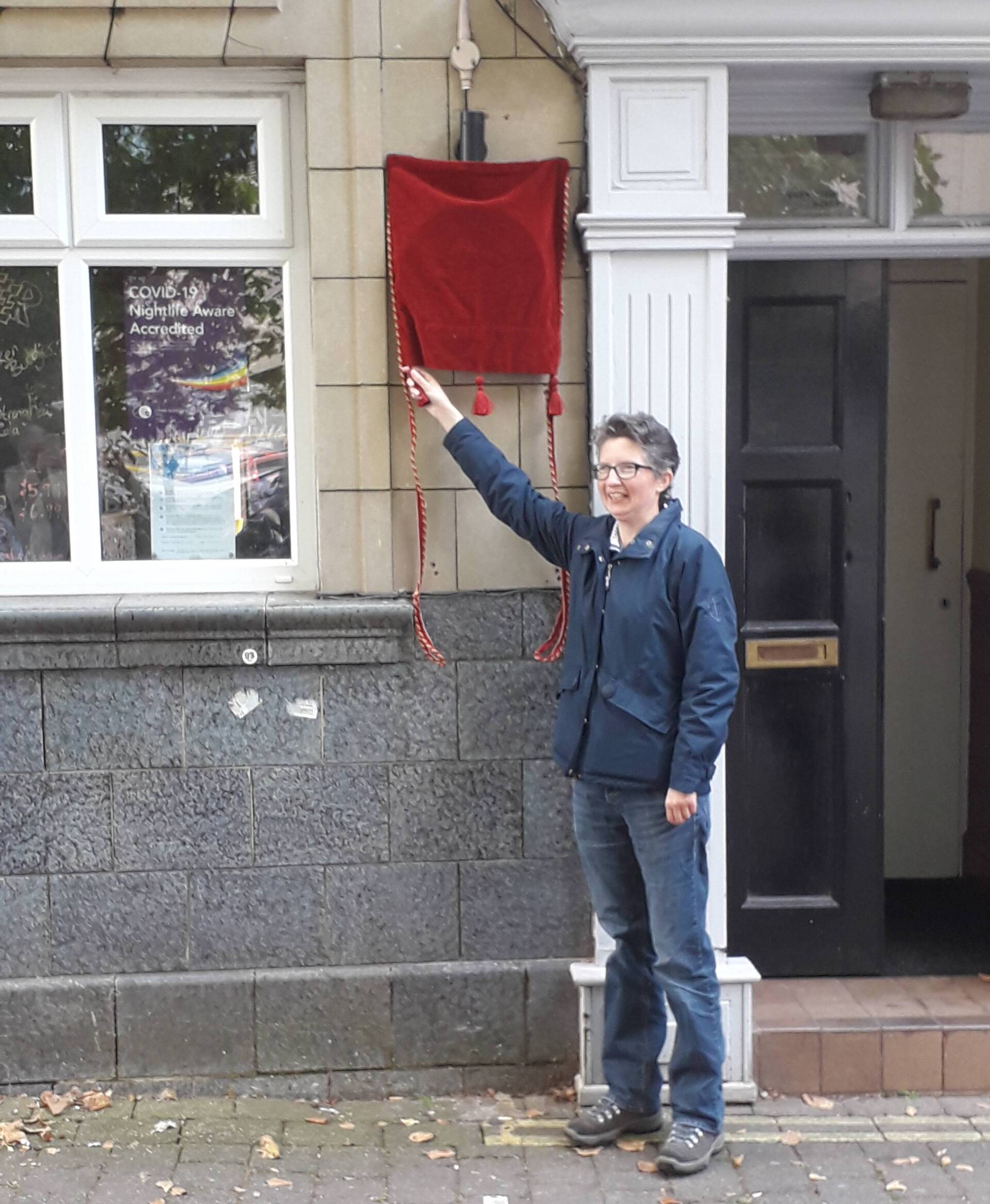
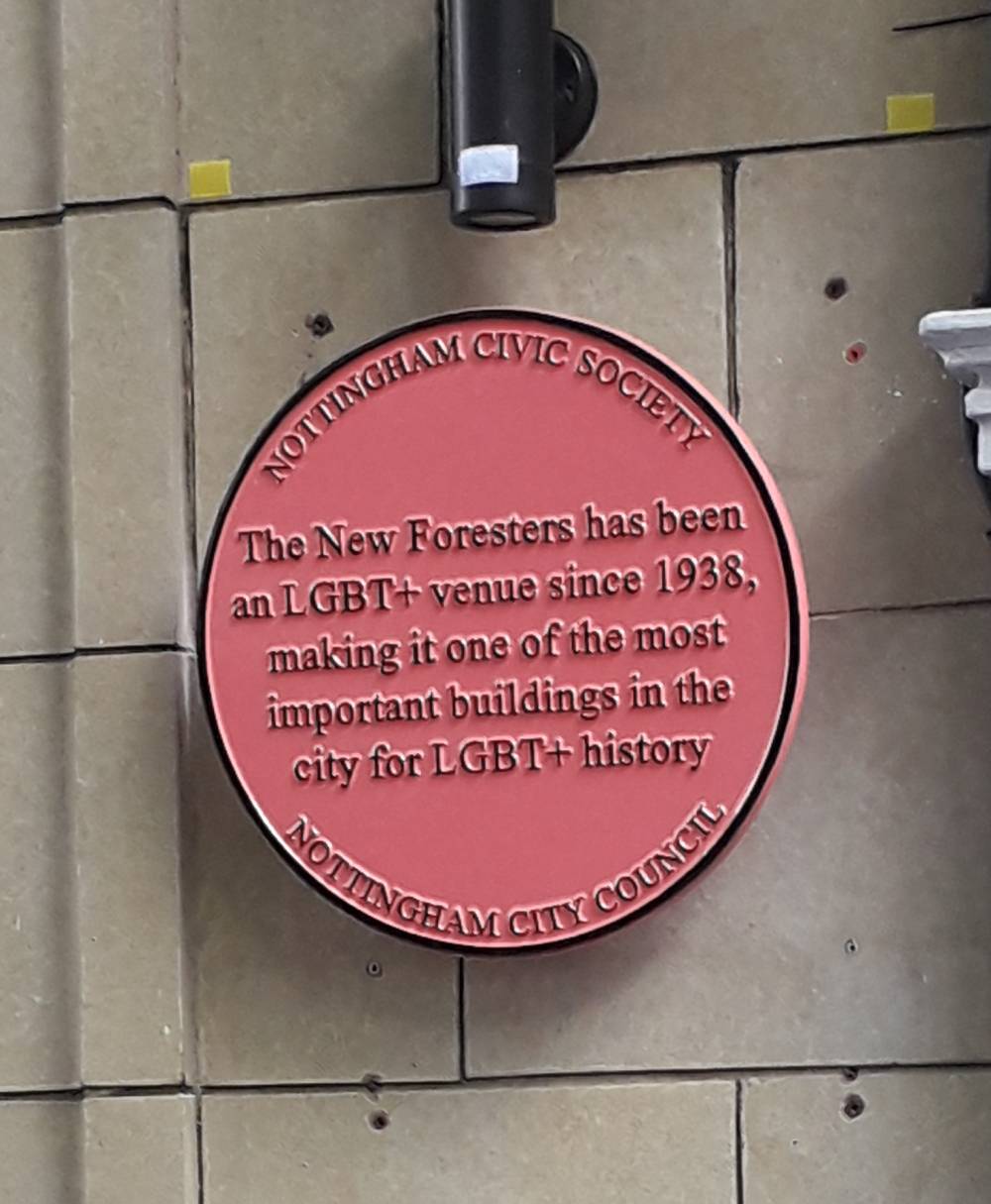
Earlier in 2021 a vote had established the New Foresters as the first LGBT place in Nottingham to be awarded a blue plaque. The plaque turned out to be pink (described by one observer as “Germolene pink) and was installed at the New Foresters on September 17th, drawing the attention of ITV News and the Evening Post.
For the past 20 years the pub has been in the capable hands of landlady Debbie Law and during that time has won many awards. The plaque was unveiled by Debbie and Councillor Angharad Roberts, who is an out gay woman.New Paragraph
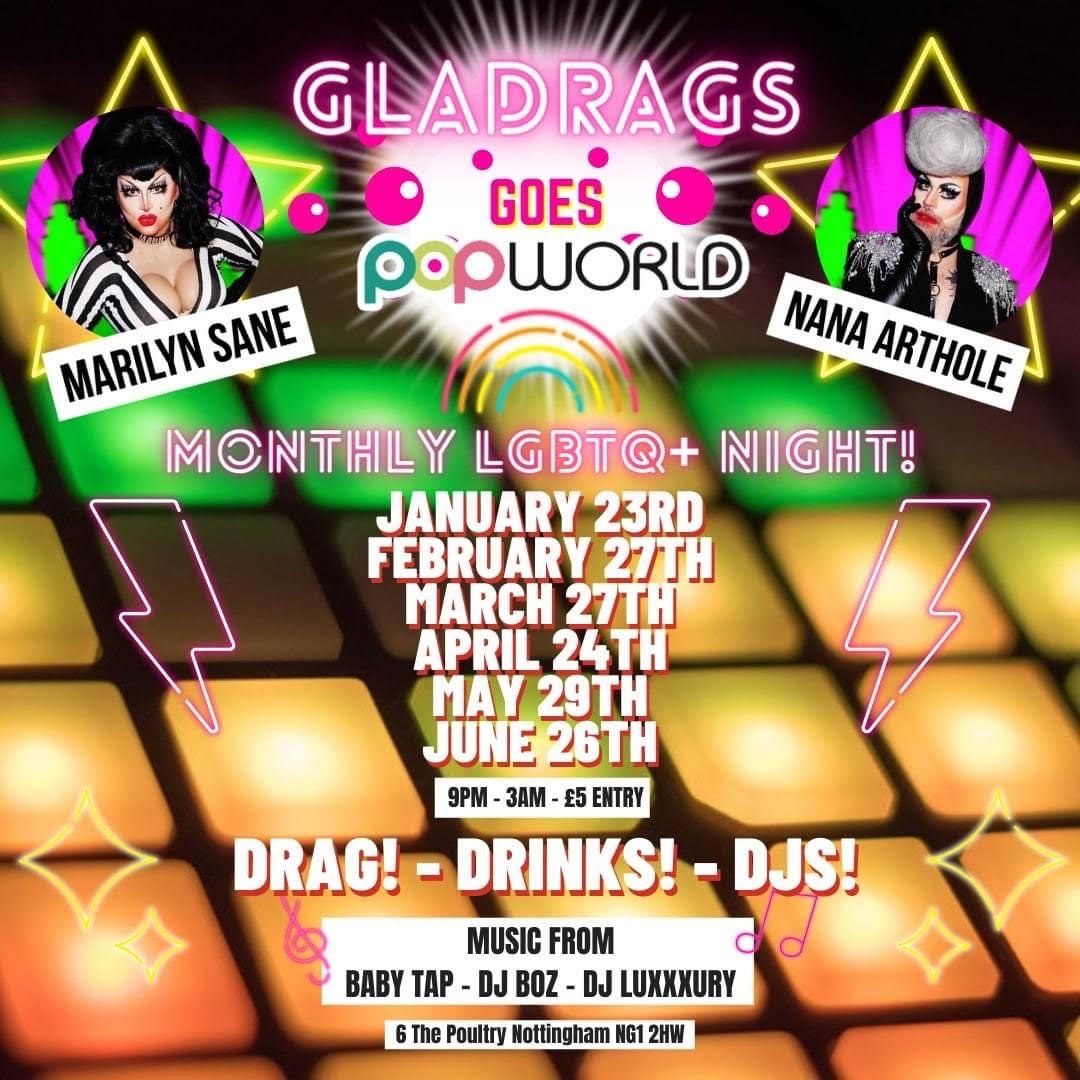
In 2021, Nottingham still lacks a permanent LGBT club, but at least there are signs of life. A new once-a-monther was been started by Gladrags and was based at a newish venue called Popworld at 6, The Poultry, near to the Council House.
This had a short life, but Gladrags continue to hold regular themed nights at Rough Trade on Broad Street (see right)
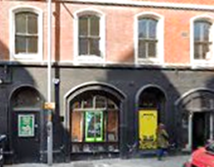
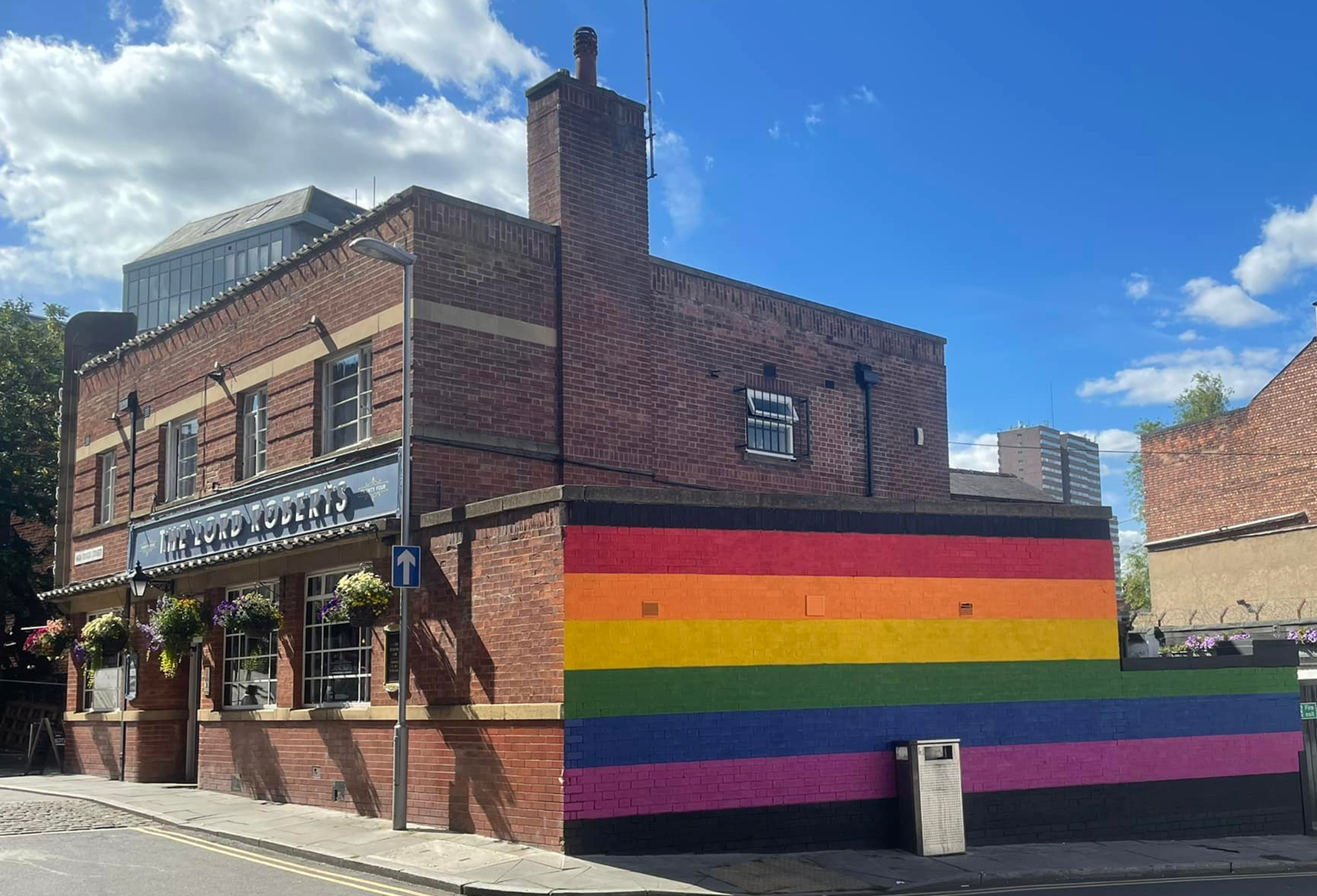
In July 2022, the Lord Roberts gained a rainbow wall
In July 2022 a new LGBT+ bar opened at 17 Broad Street.
This was the GOAT. No, it is nothing whatsoever to do with the hardy domesticated ruminant mammal that has backward curving horns.
Apparently, it stands for Greatest Of All Time and was opened by Ronnie and his partner Michael.
in July 2024 a major problem in the premises above the GOAT caused a flood which resulted in catastrophic damage. In August 2024 the owners decided to close the venue permanently.
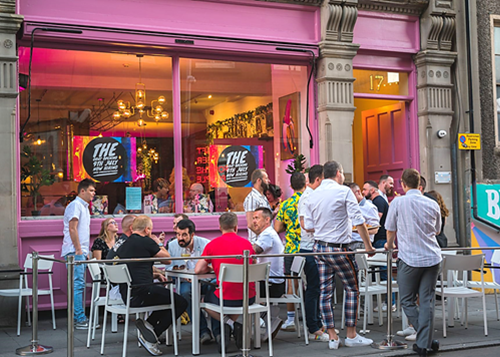
In 2024, the NGQ Collective was set up. NGQ stands for Nottingham Gay Quarter and the NGQ Collective is a collection of safe space bars. They say “Our aim is to create a safe space area rather than just individual venues, We aim to do this through working in collaboration with each other.”
Currently NGQ consists of The New Foresters, the Lord Roberts, Six Barrel Victoria, The Peacock, The Golden Fleece, the Playwright and, recently added, MOJO.
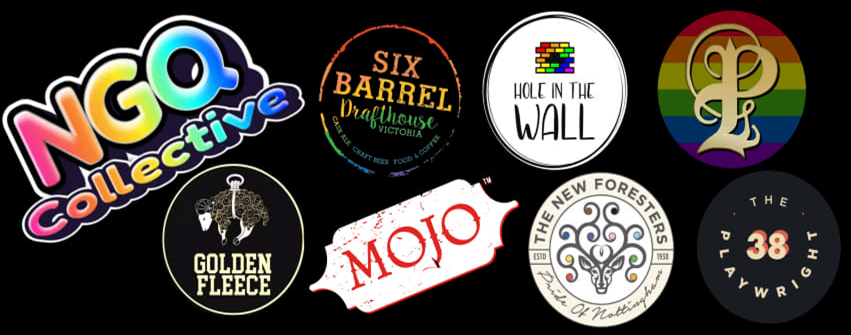
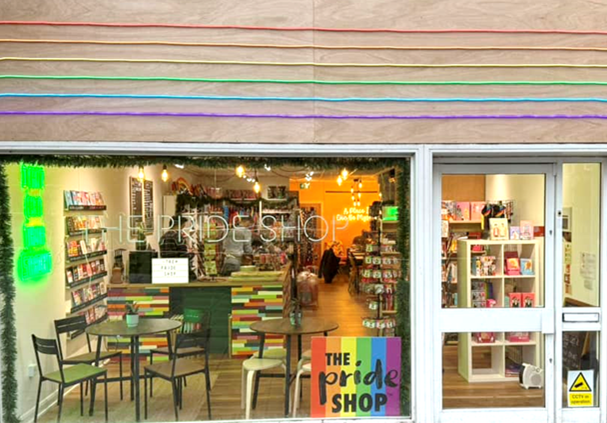
Graham and Jake opened the Pride Shop at the end of November 2024. Previously they have been operating via internet sales.
As well as LGBT+ related items, there are also cakes and drinks available in a cafe which seats about 20 people. It is hoped that the Pride Shop will be used as a community space, particularly by those who would like a daytime venue.
The Pride Shop is at 65 Maid Marian Way, Nottingham.
